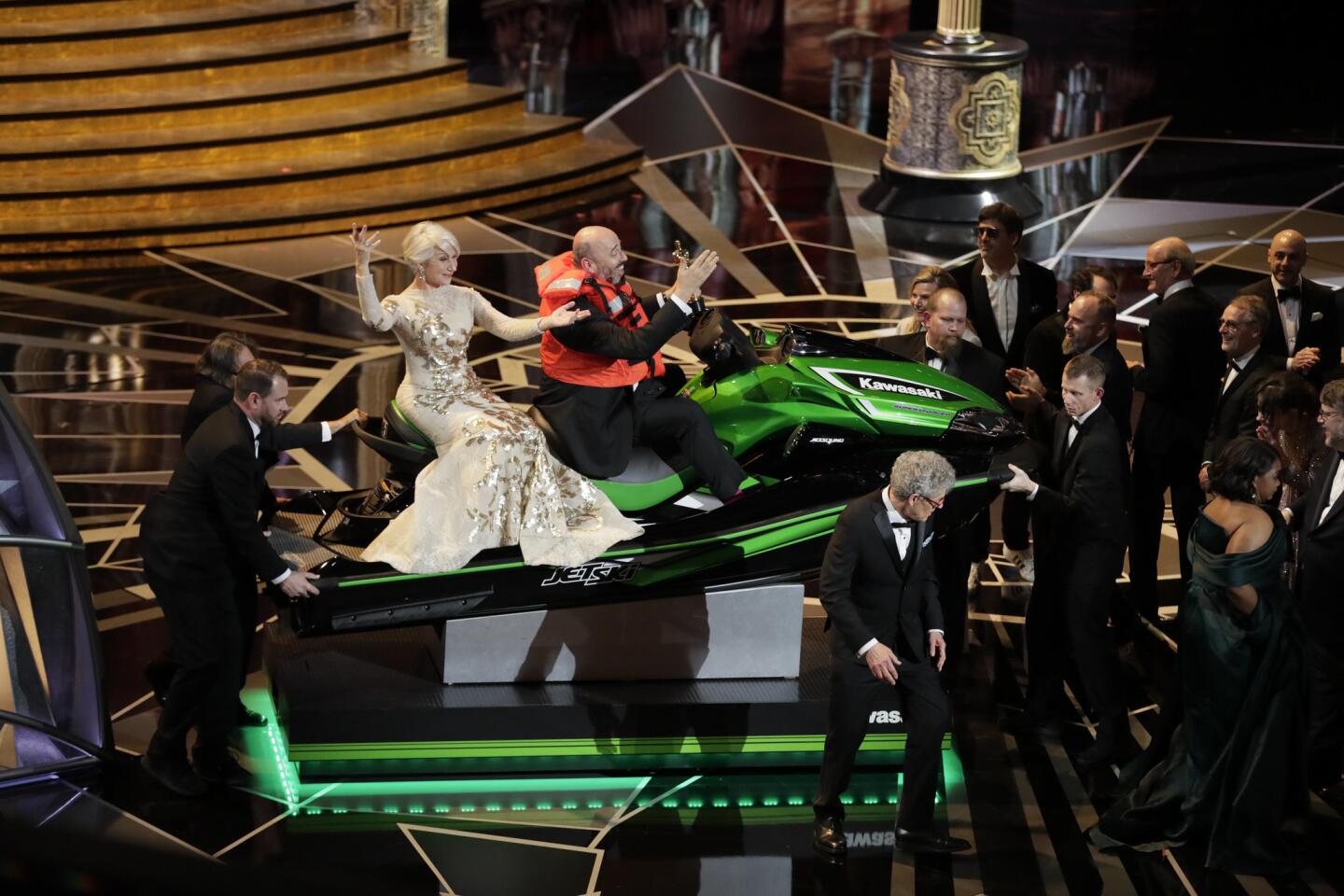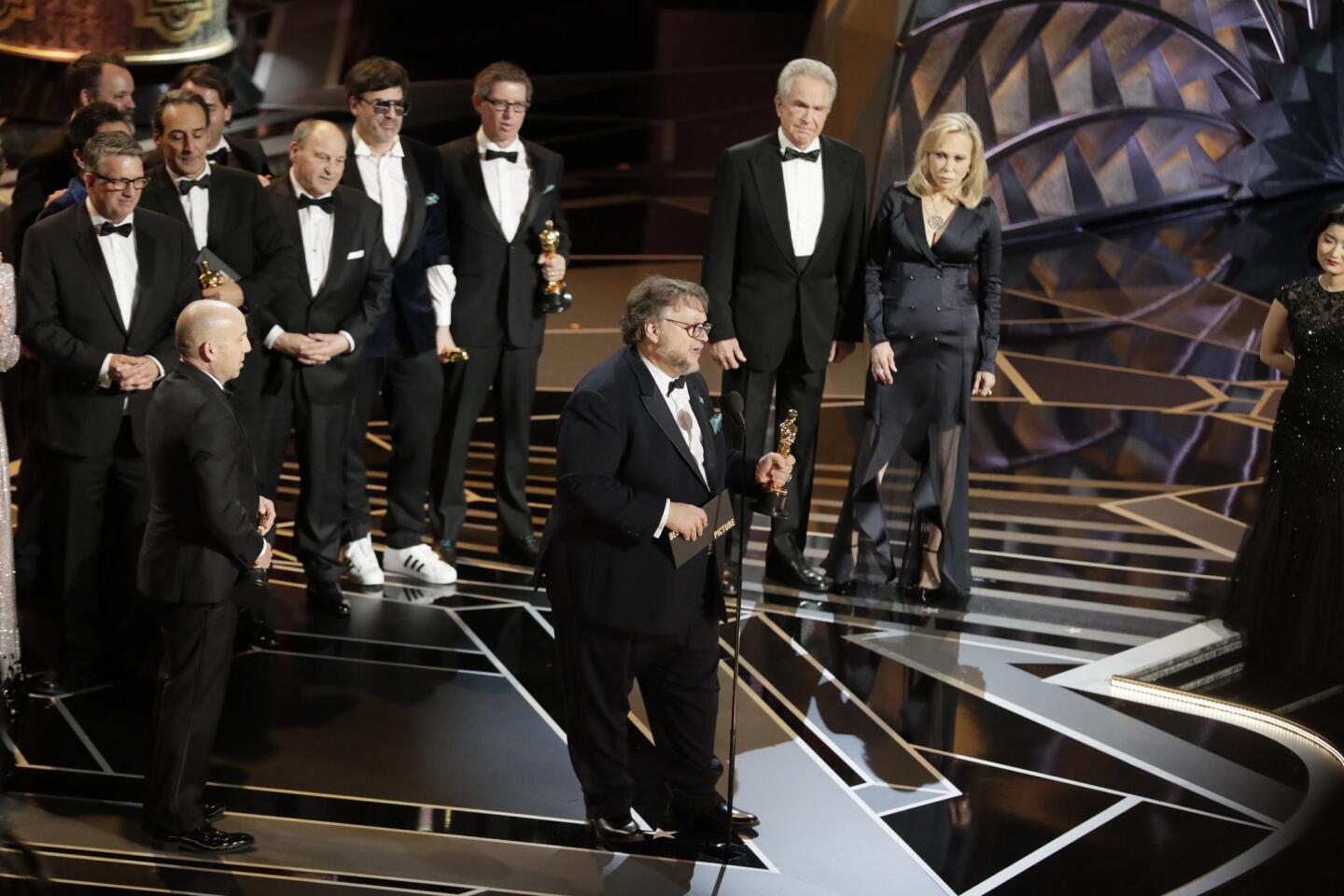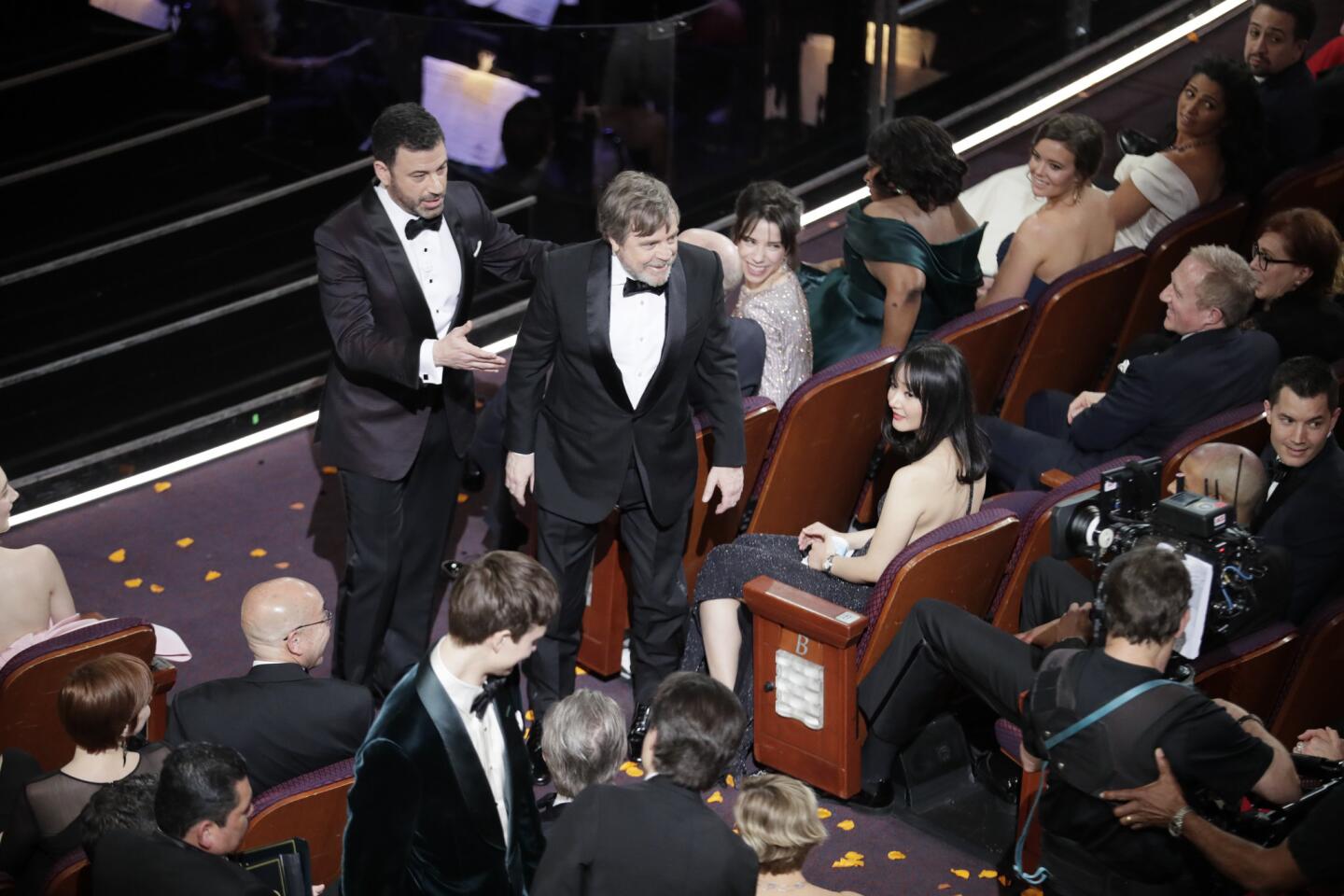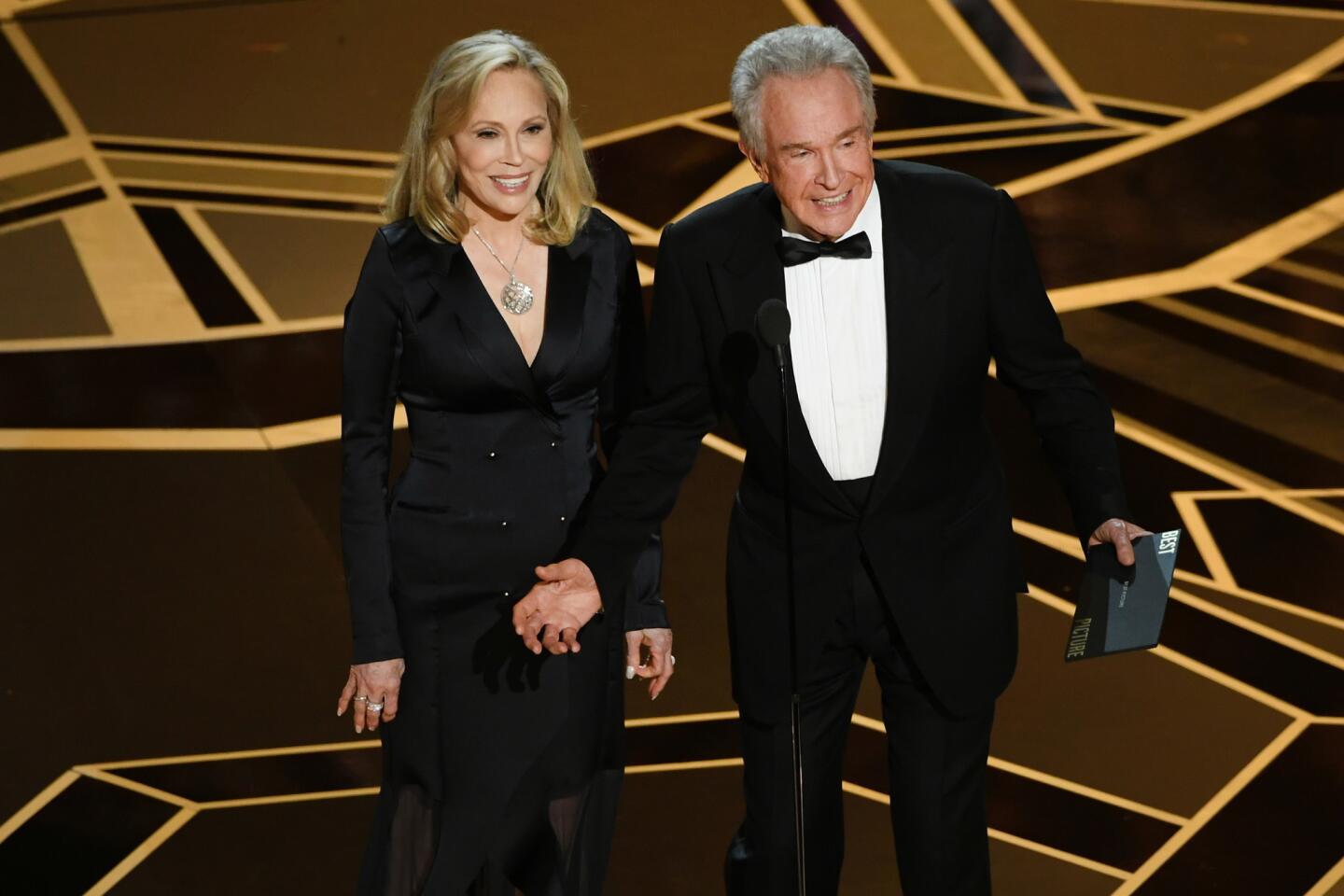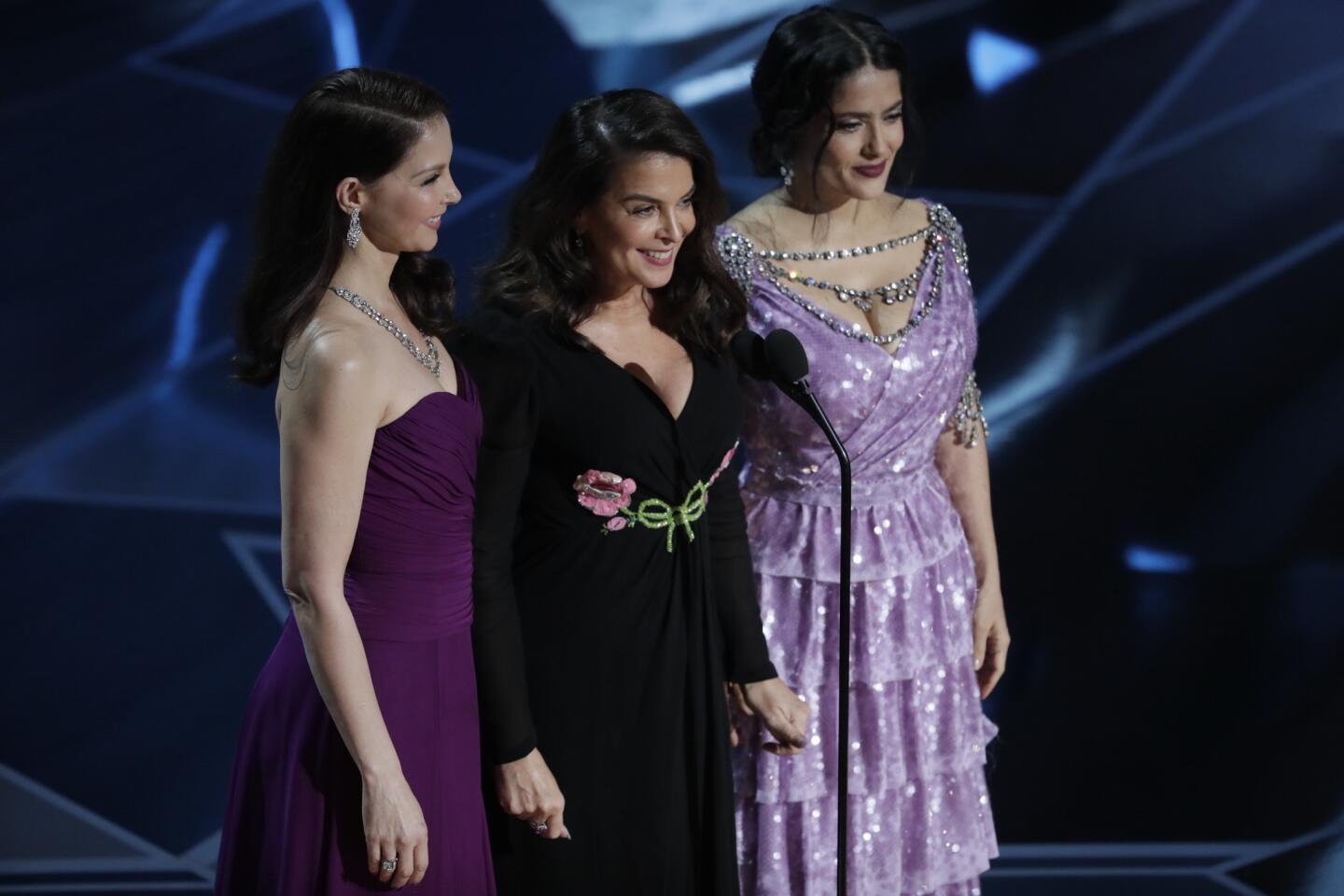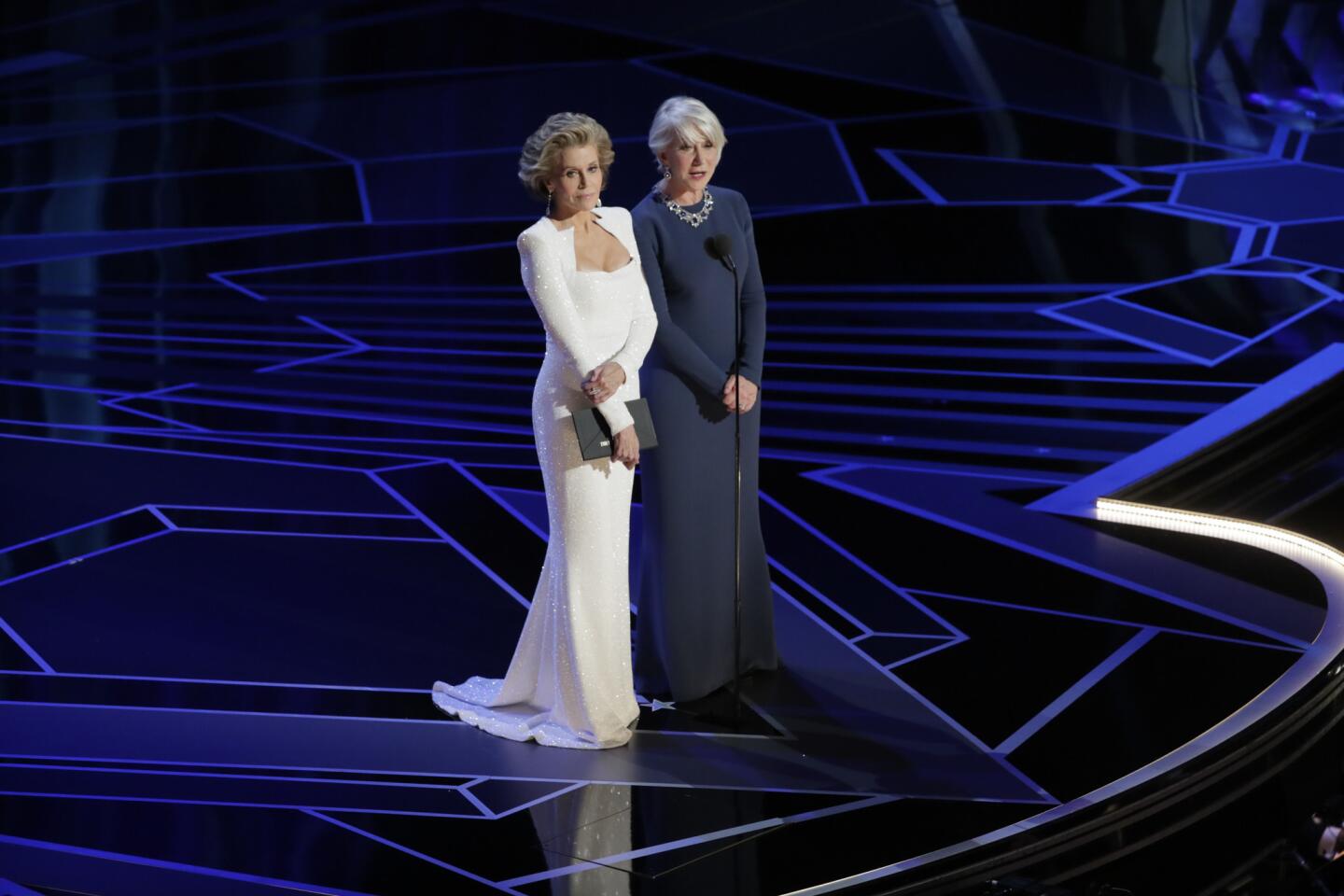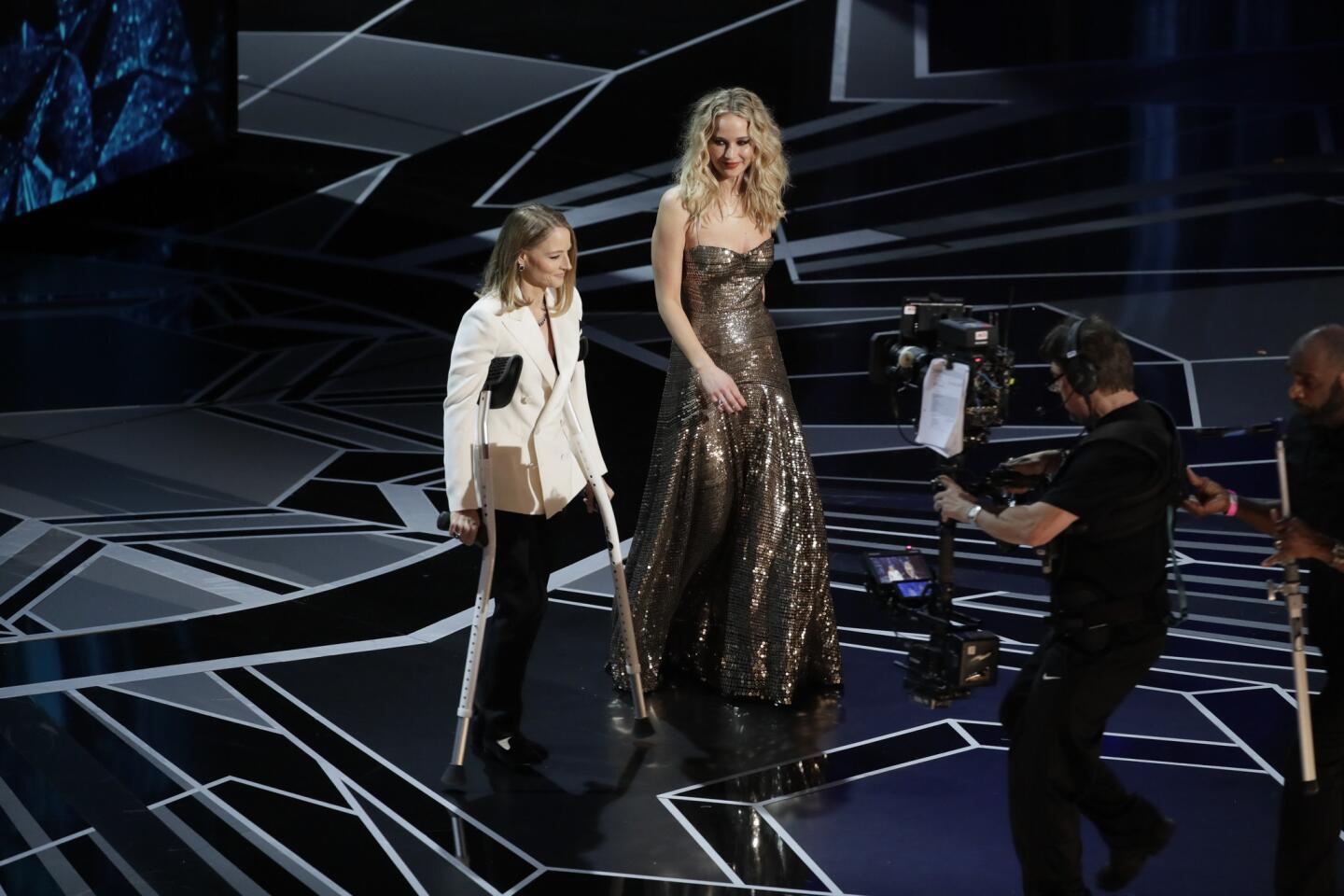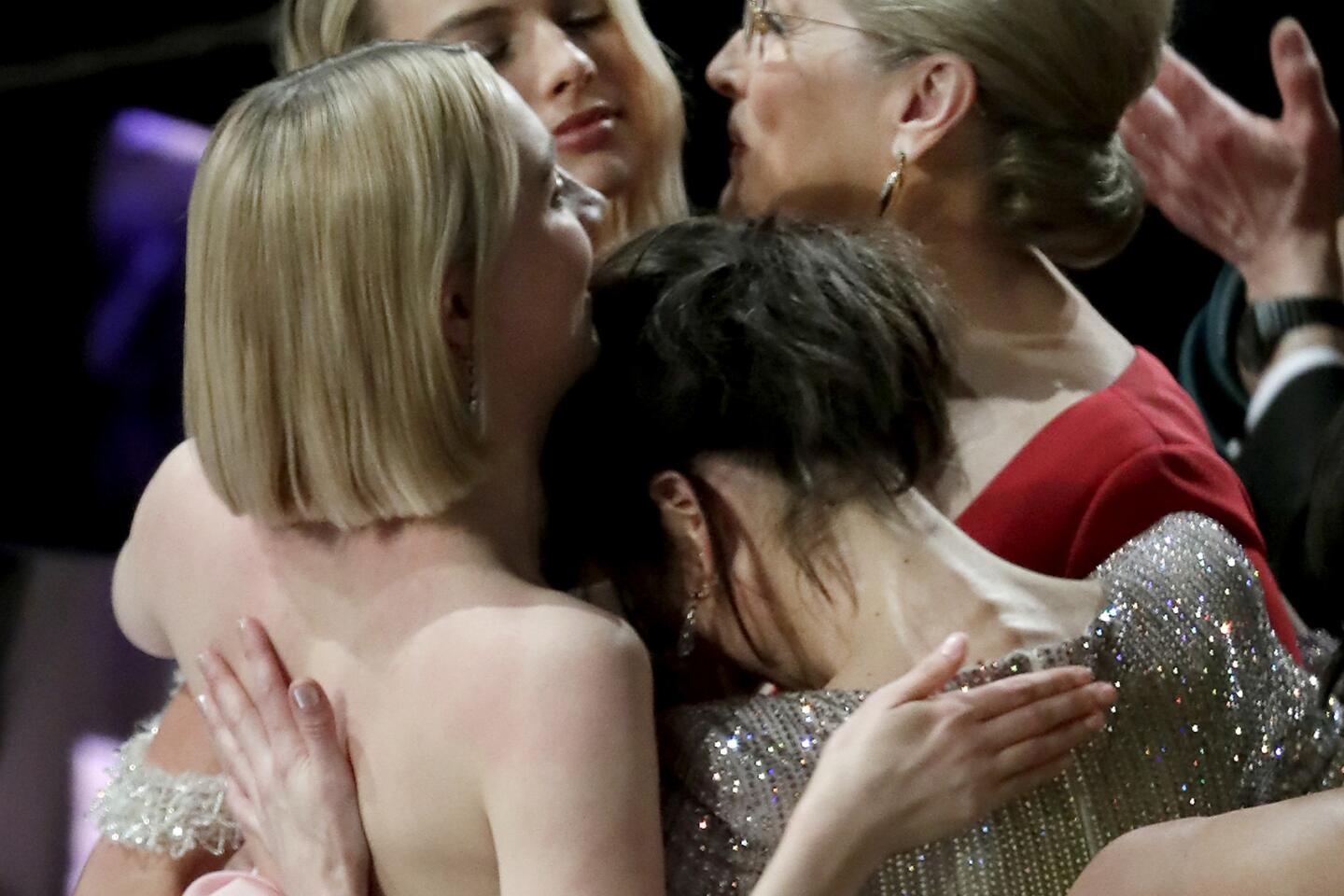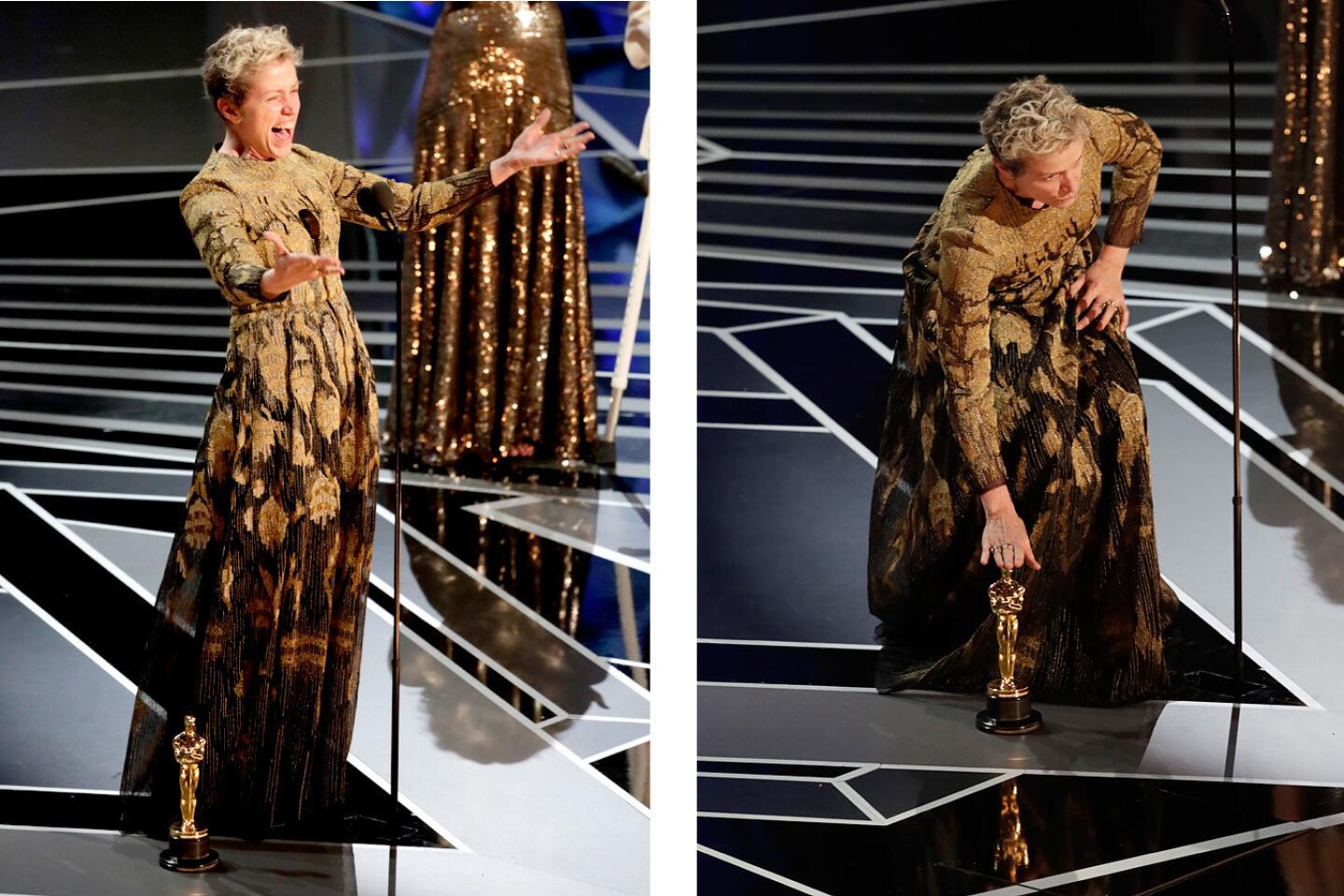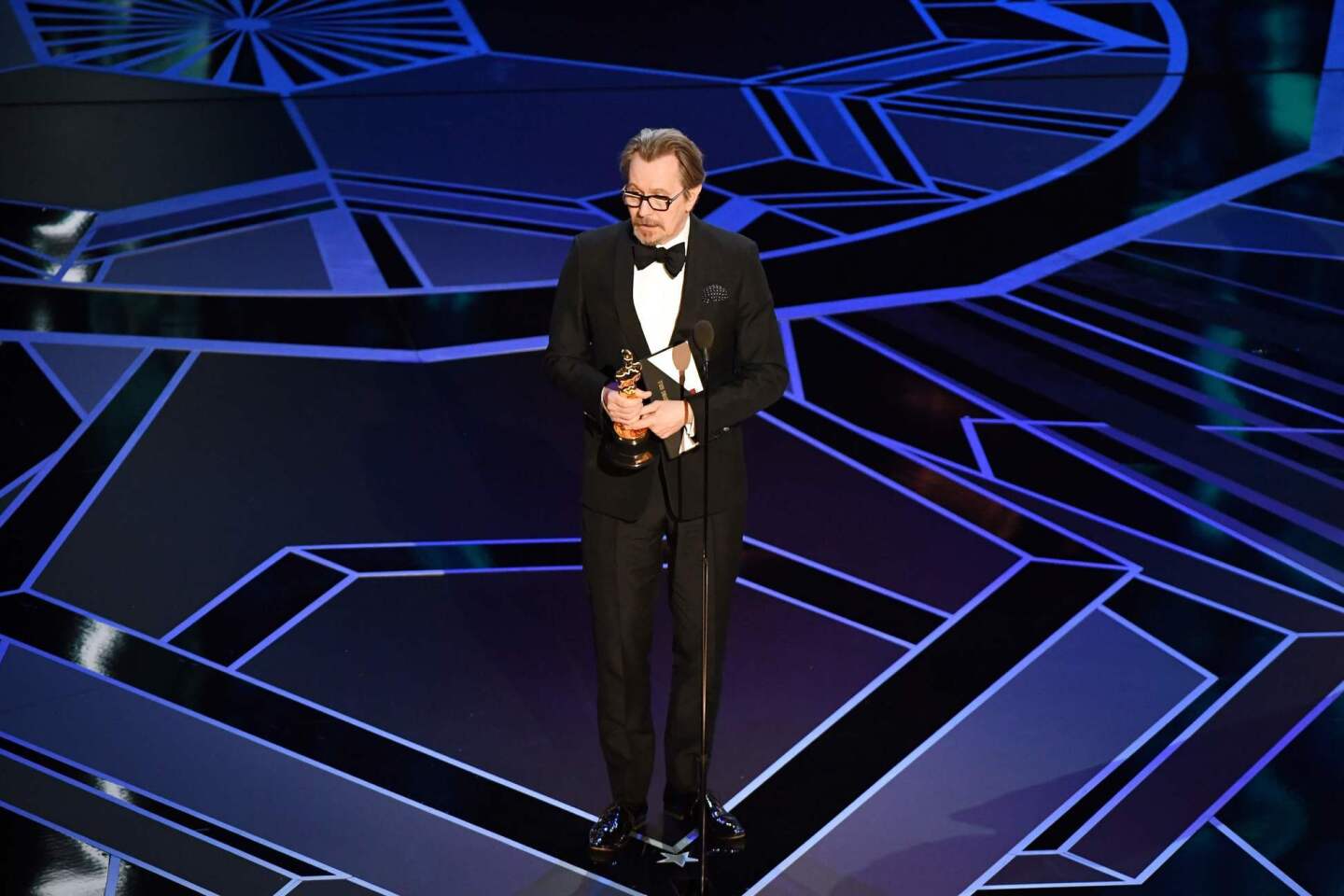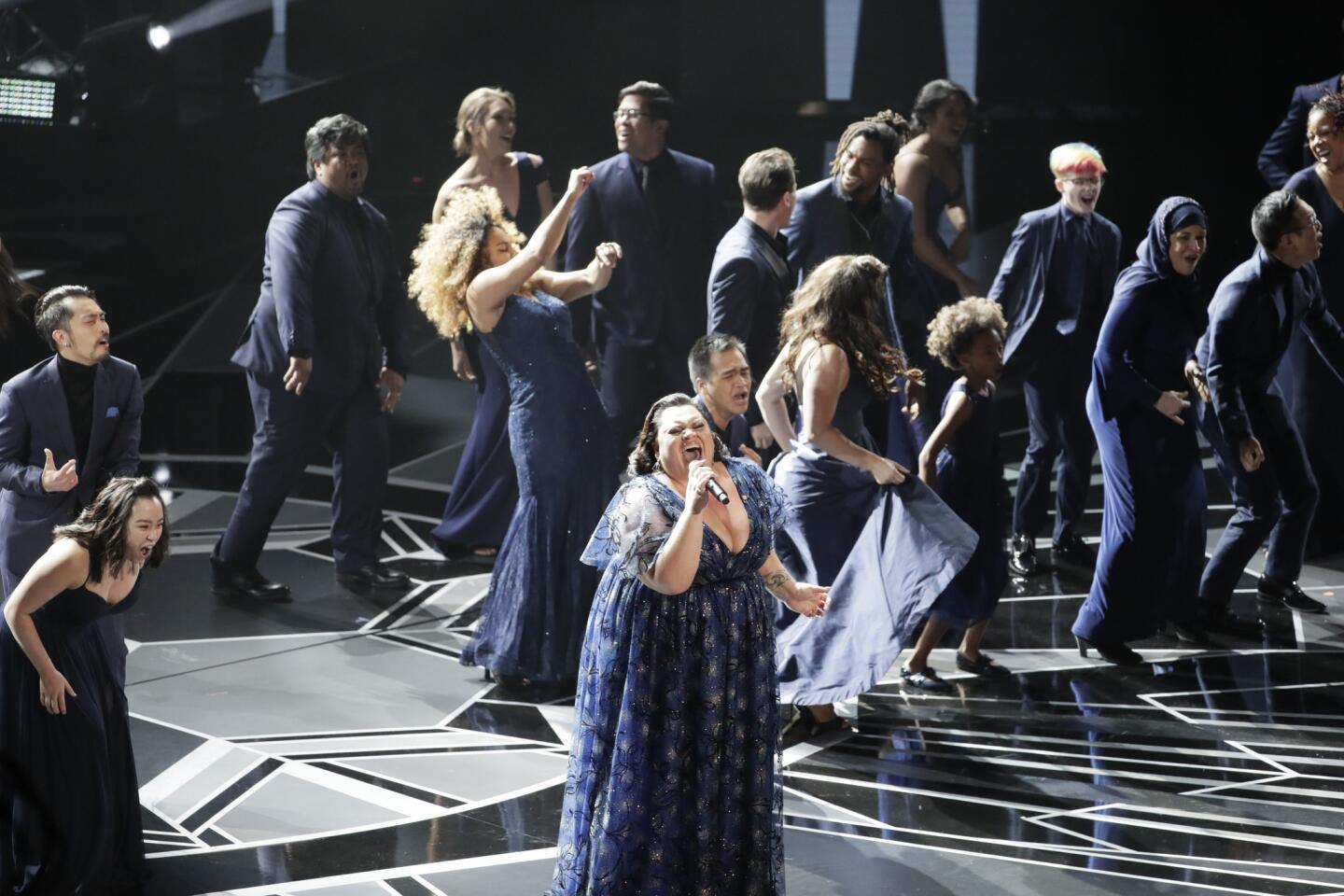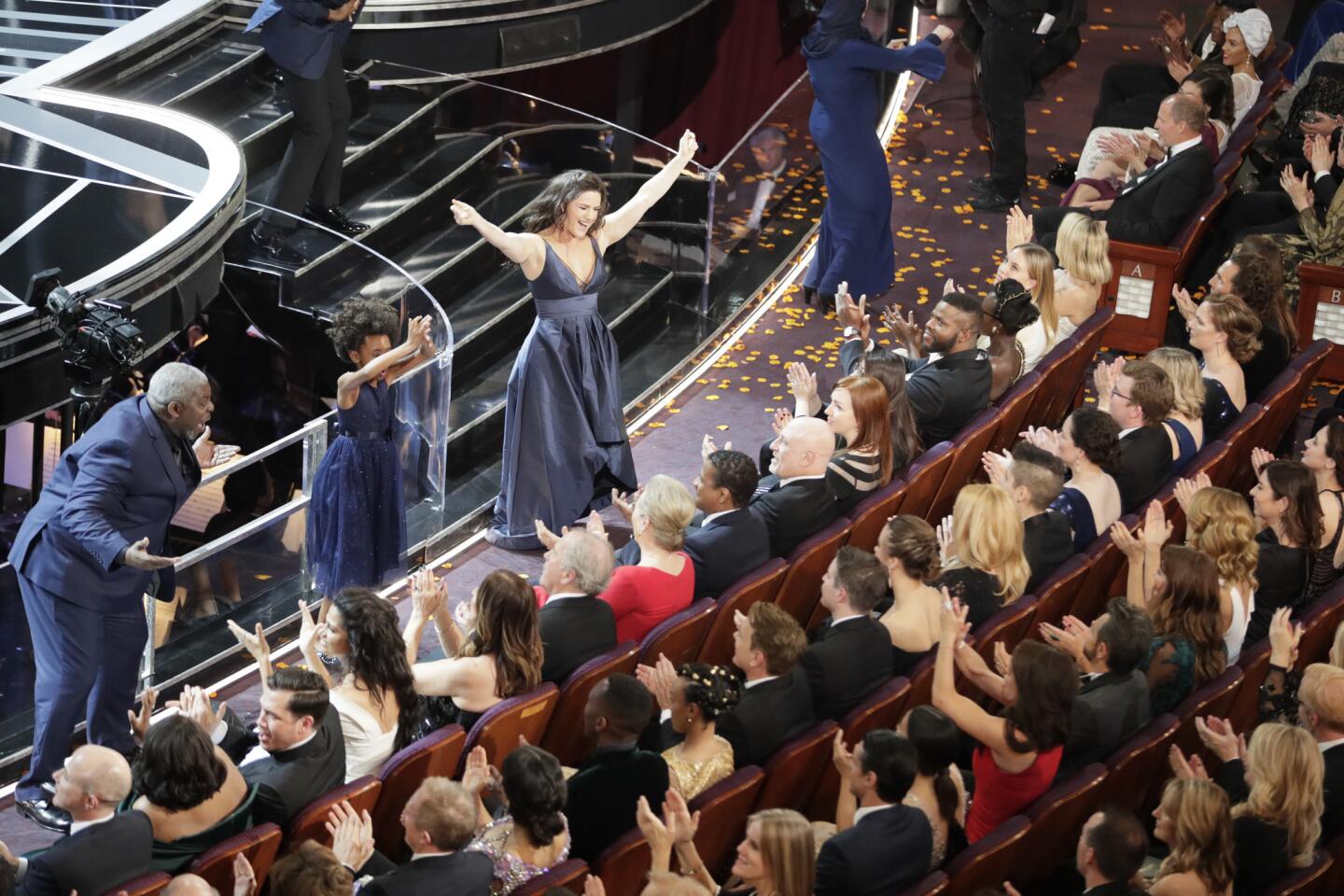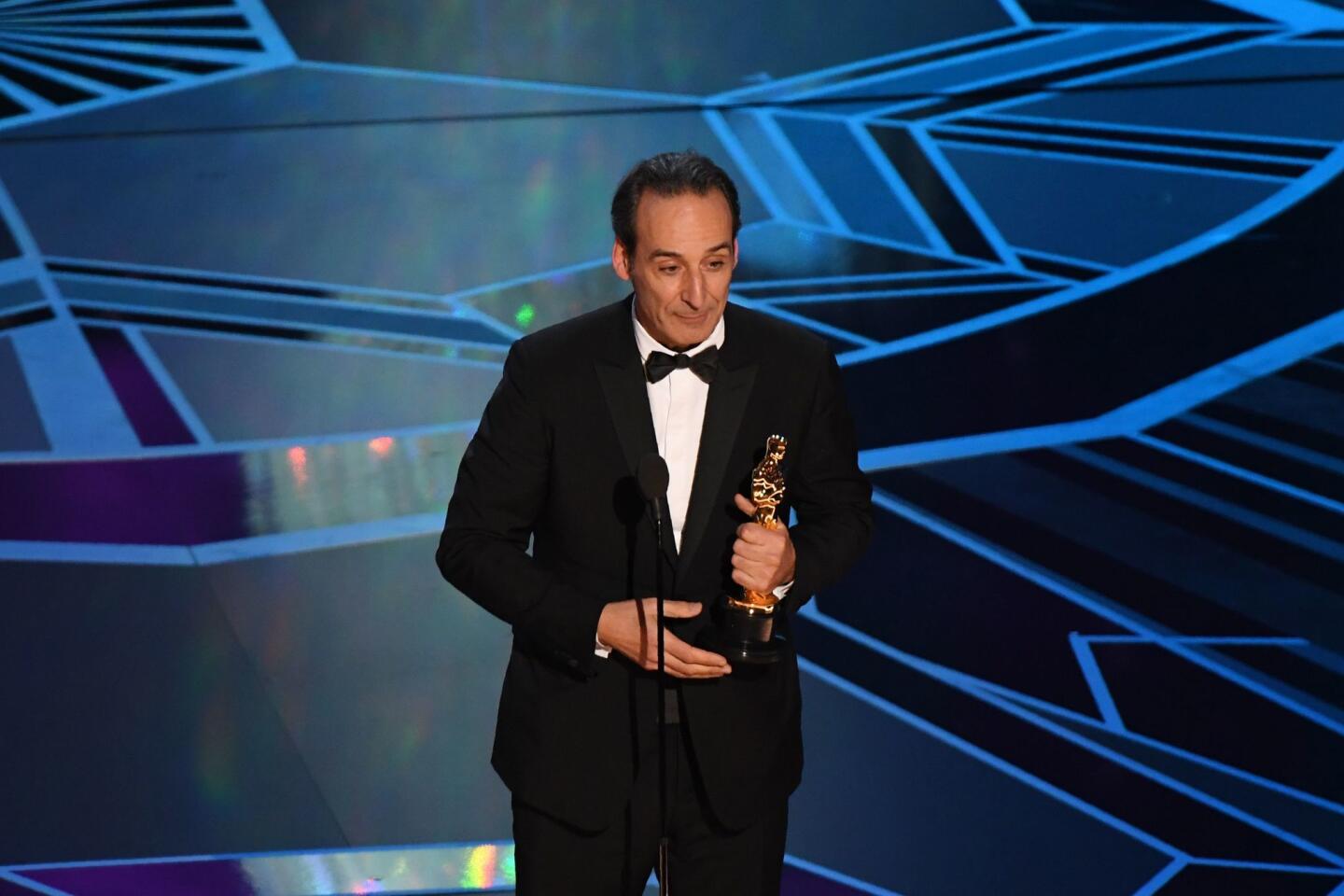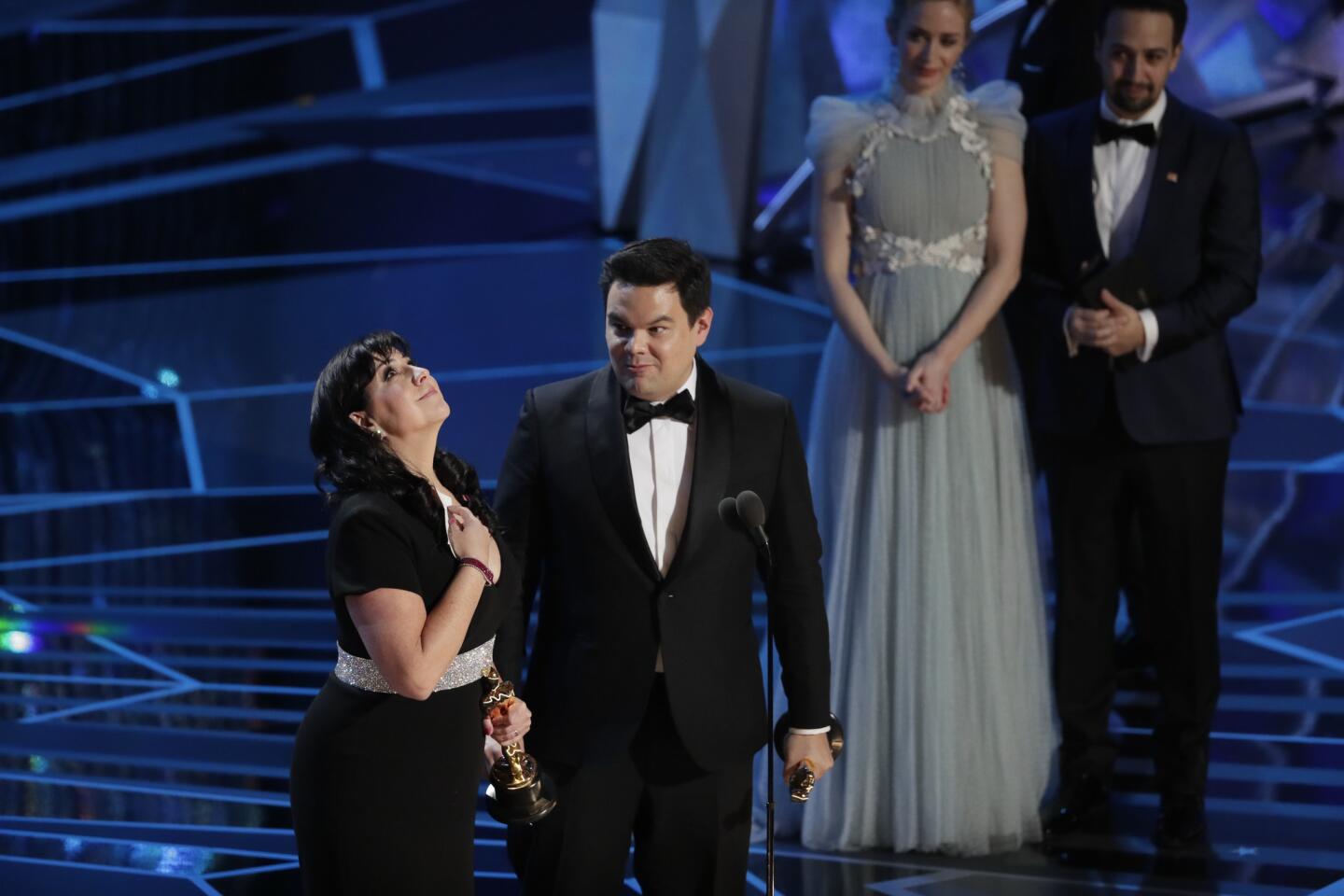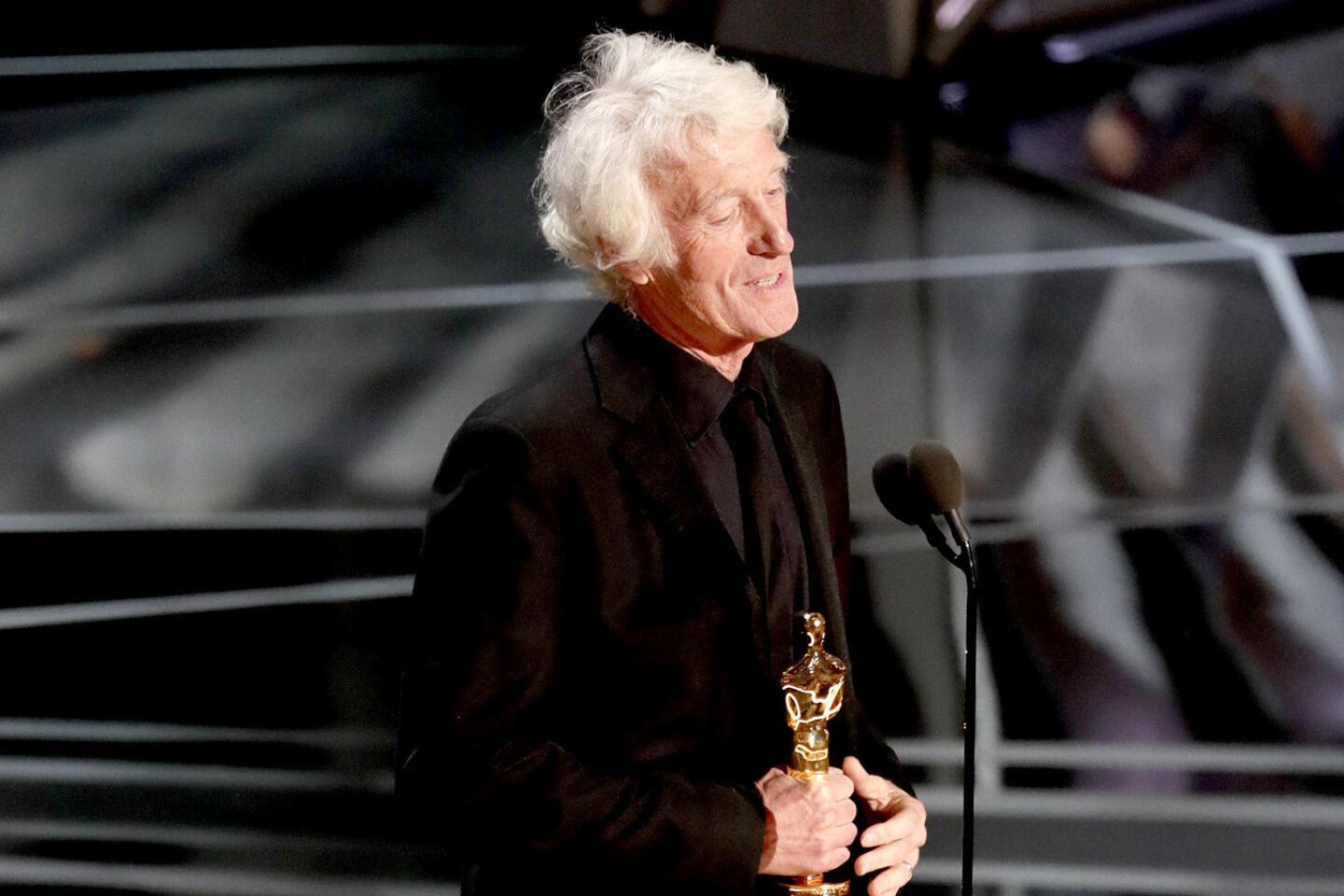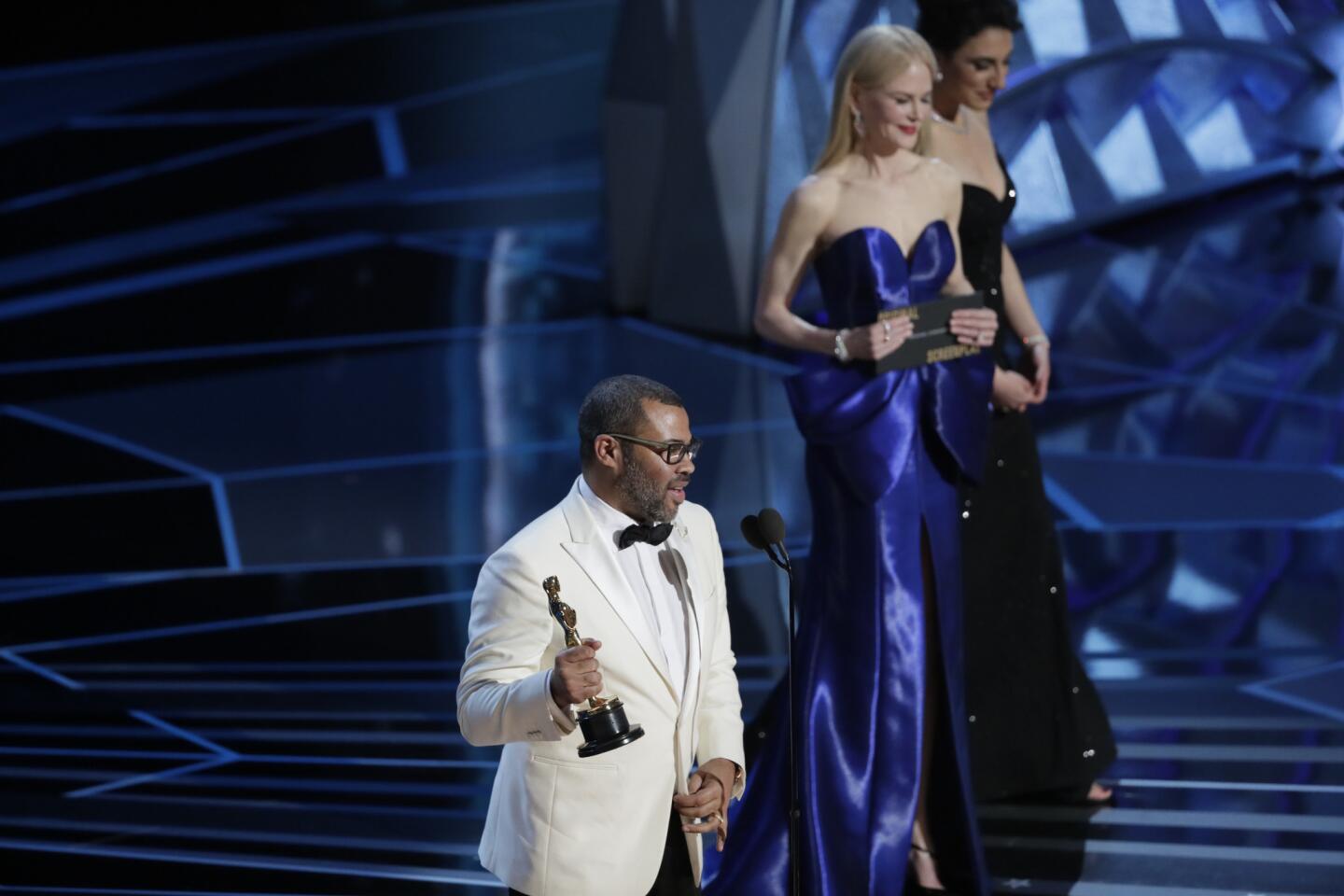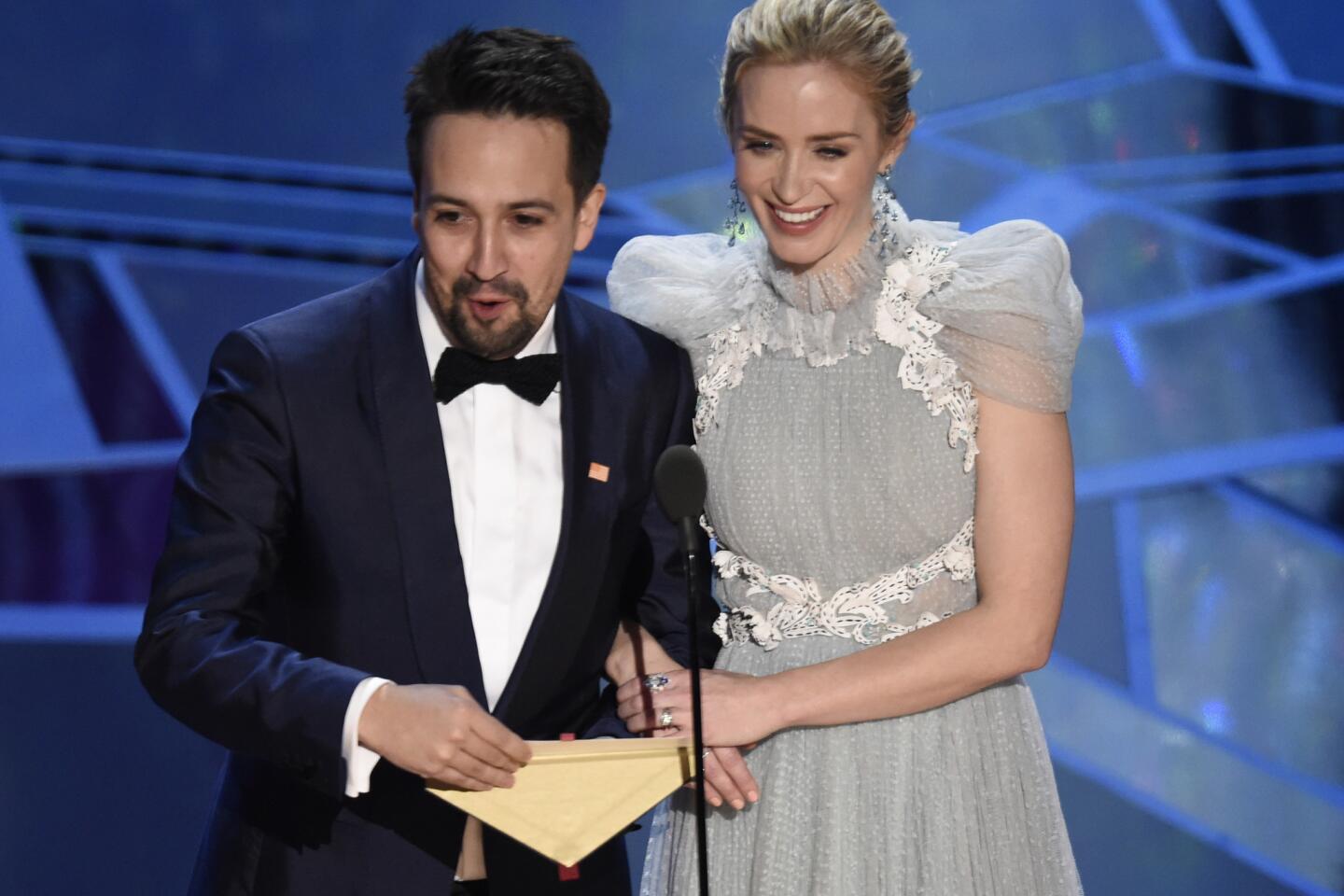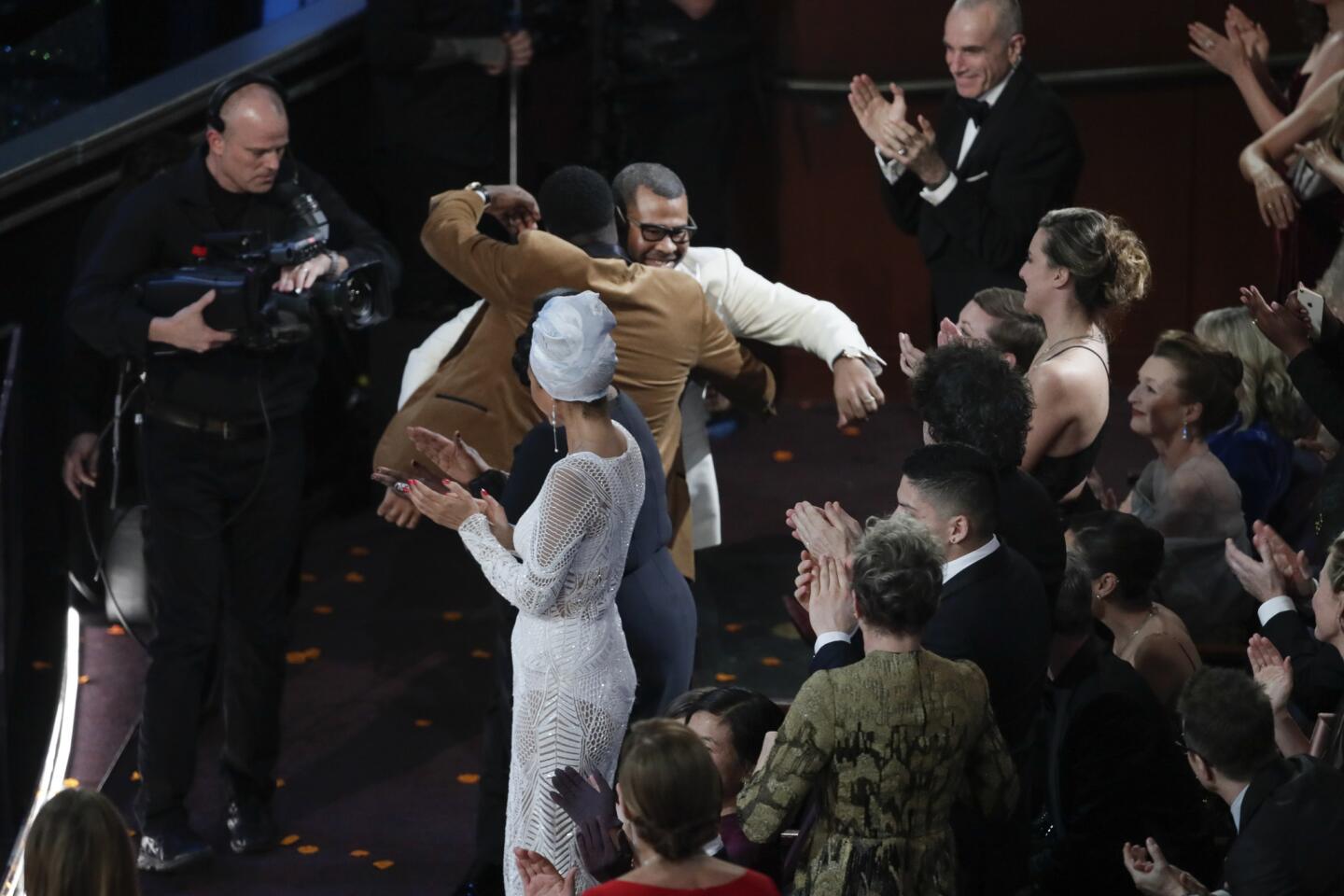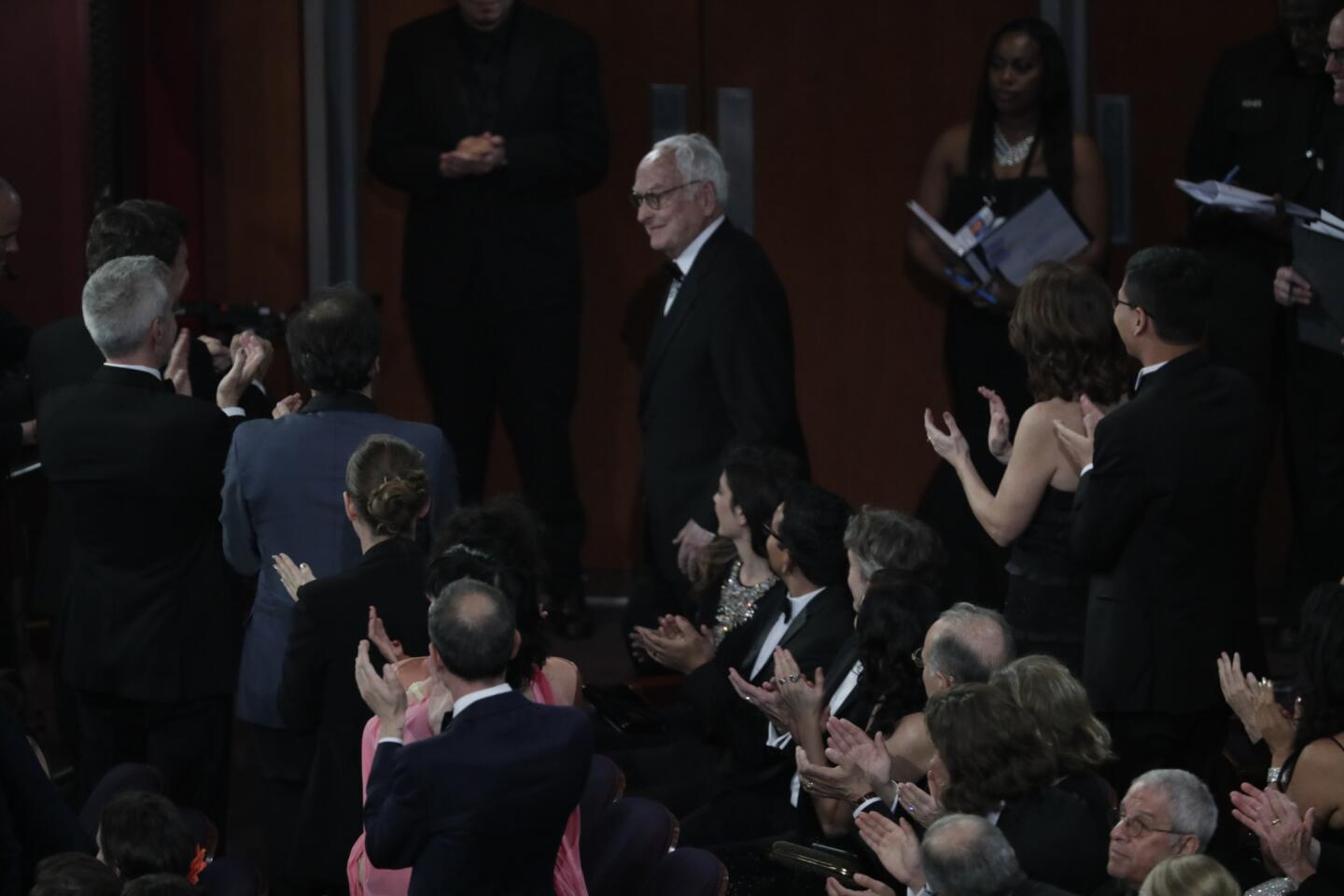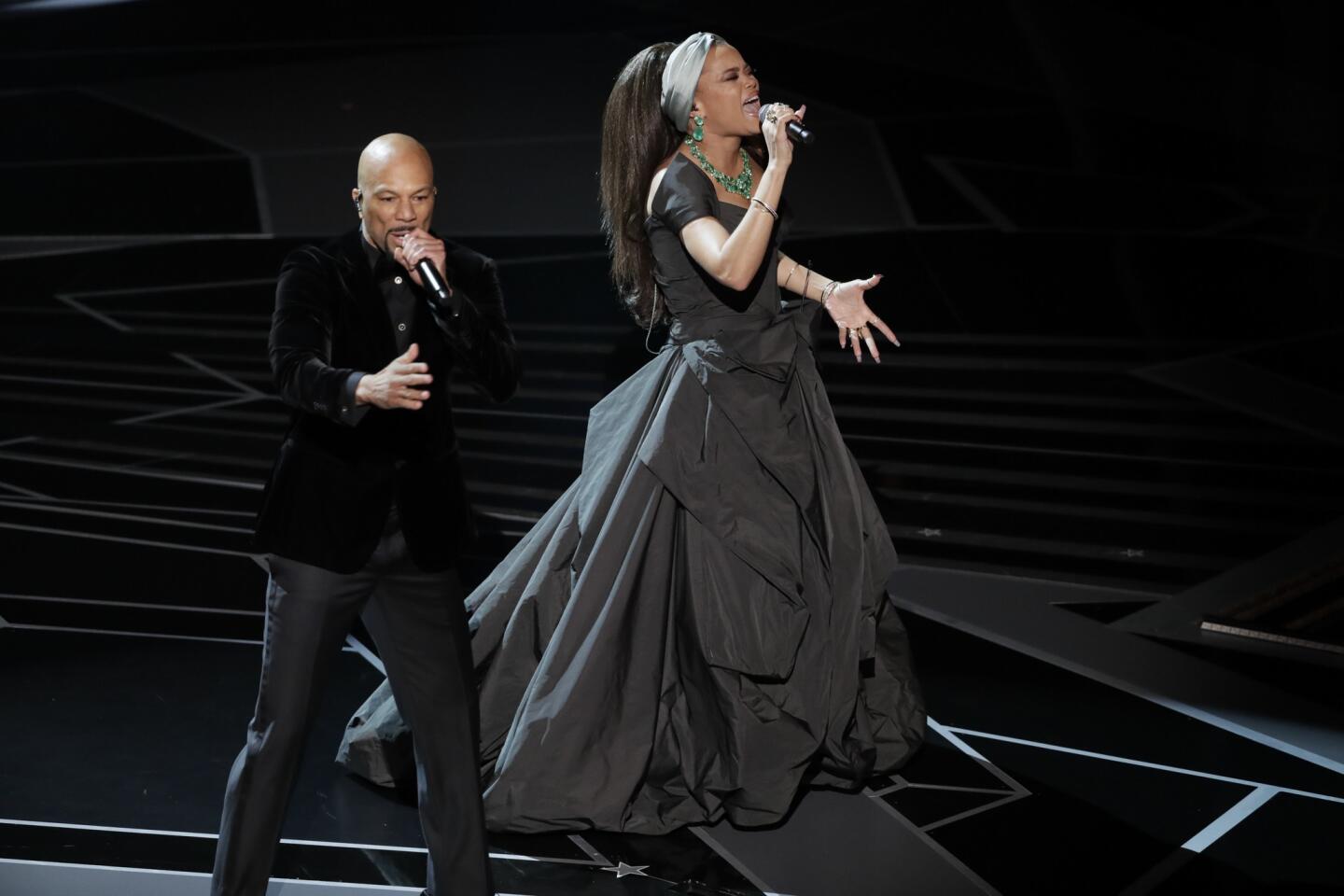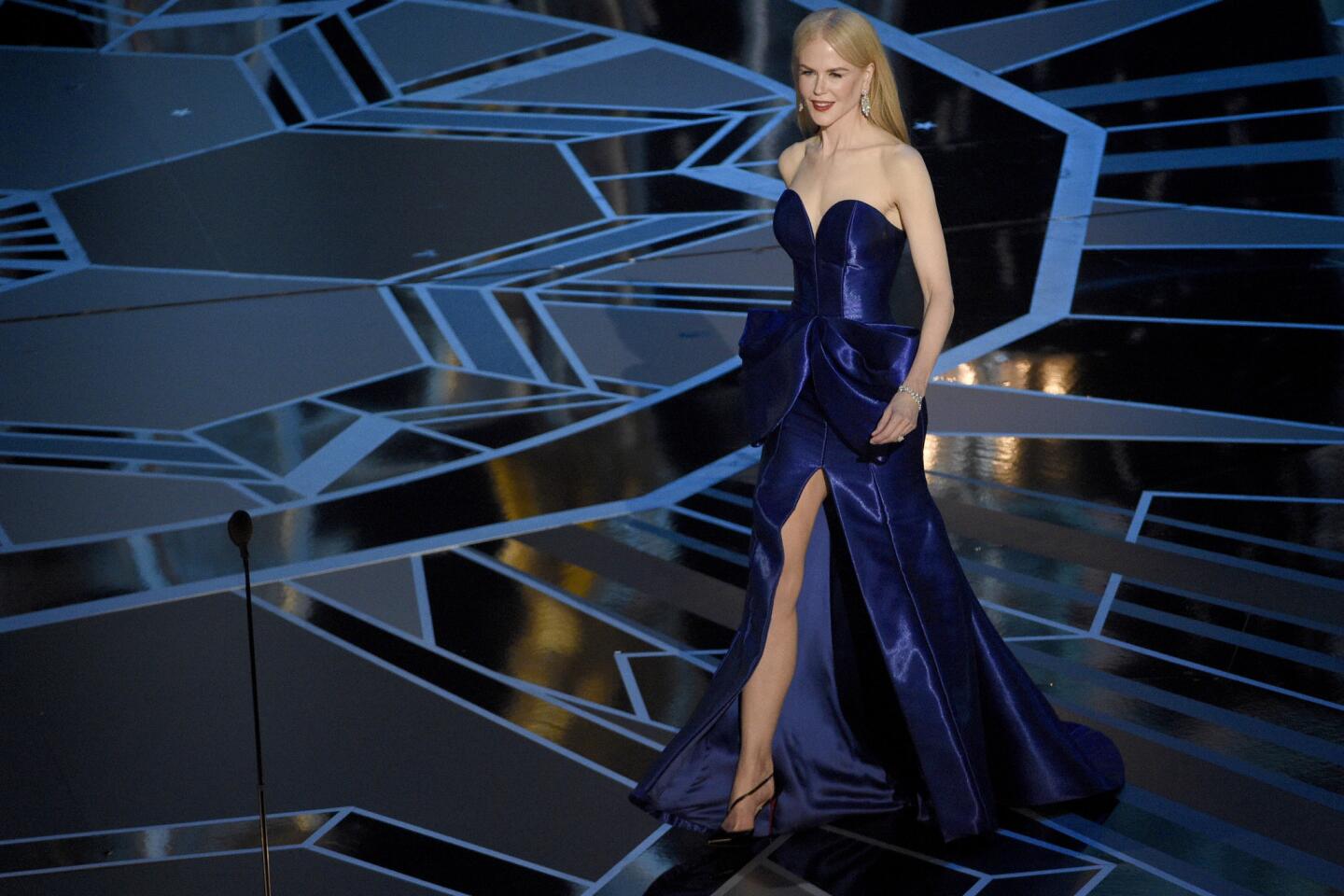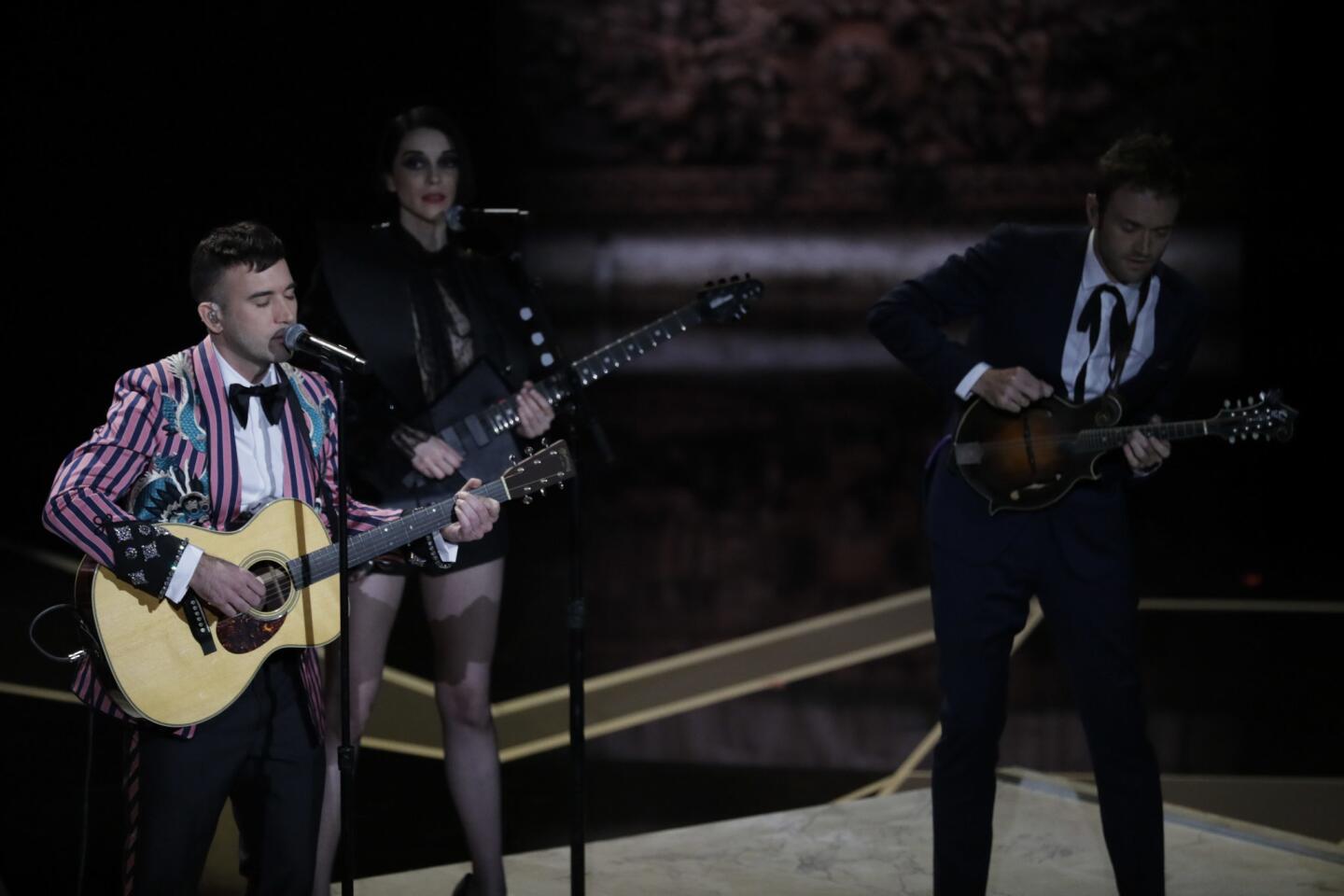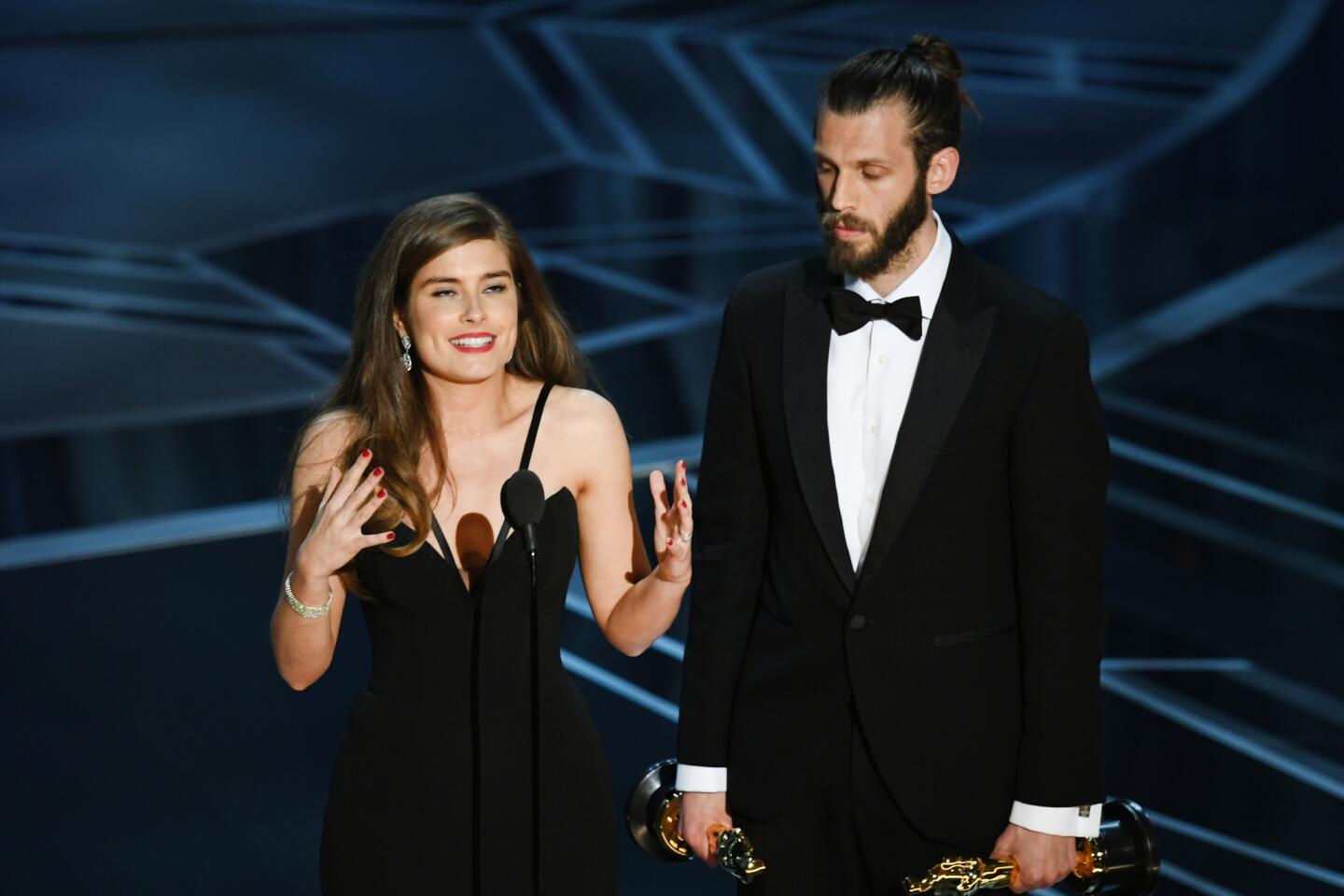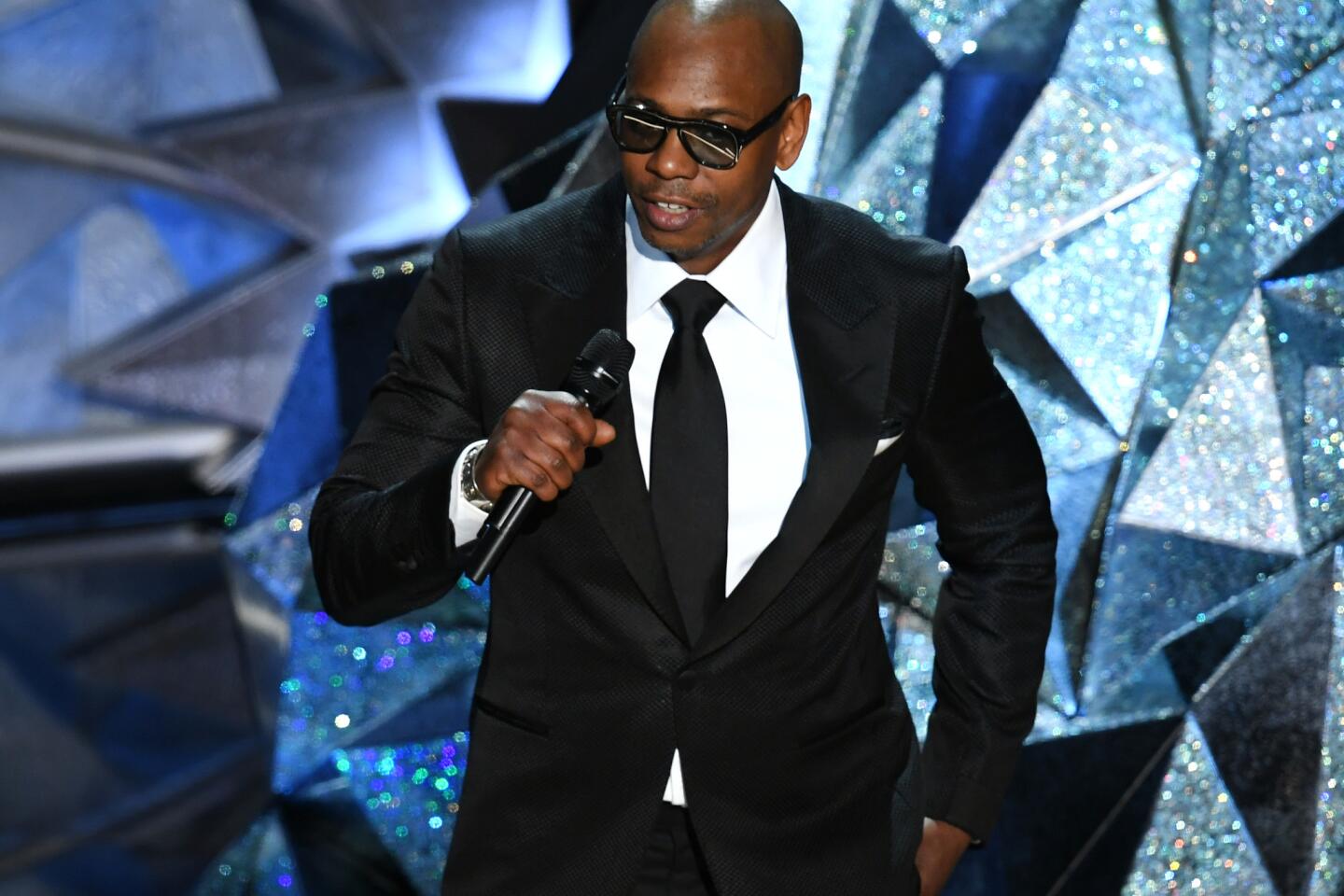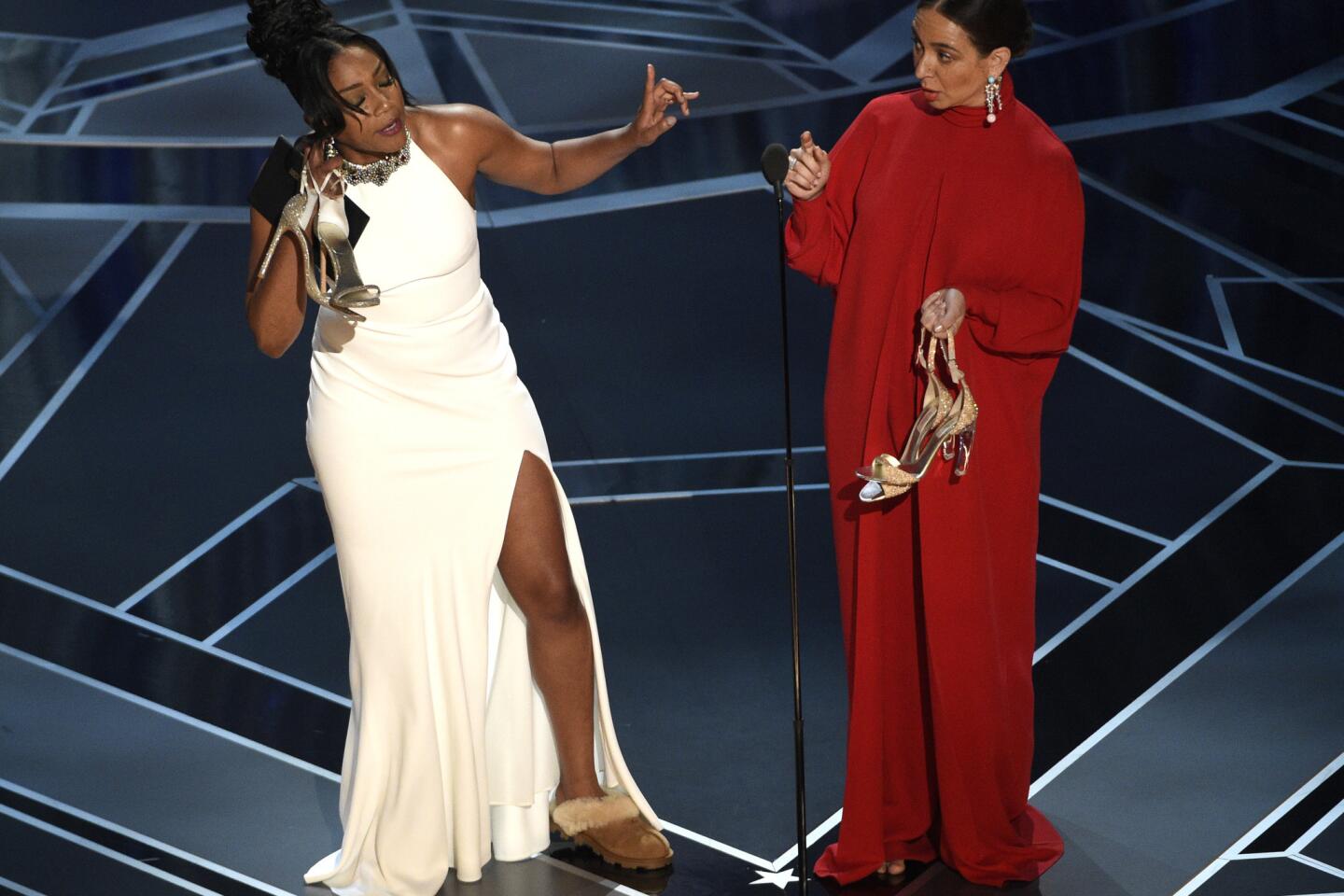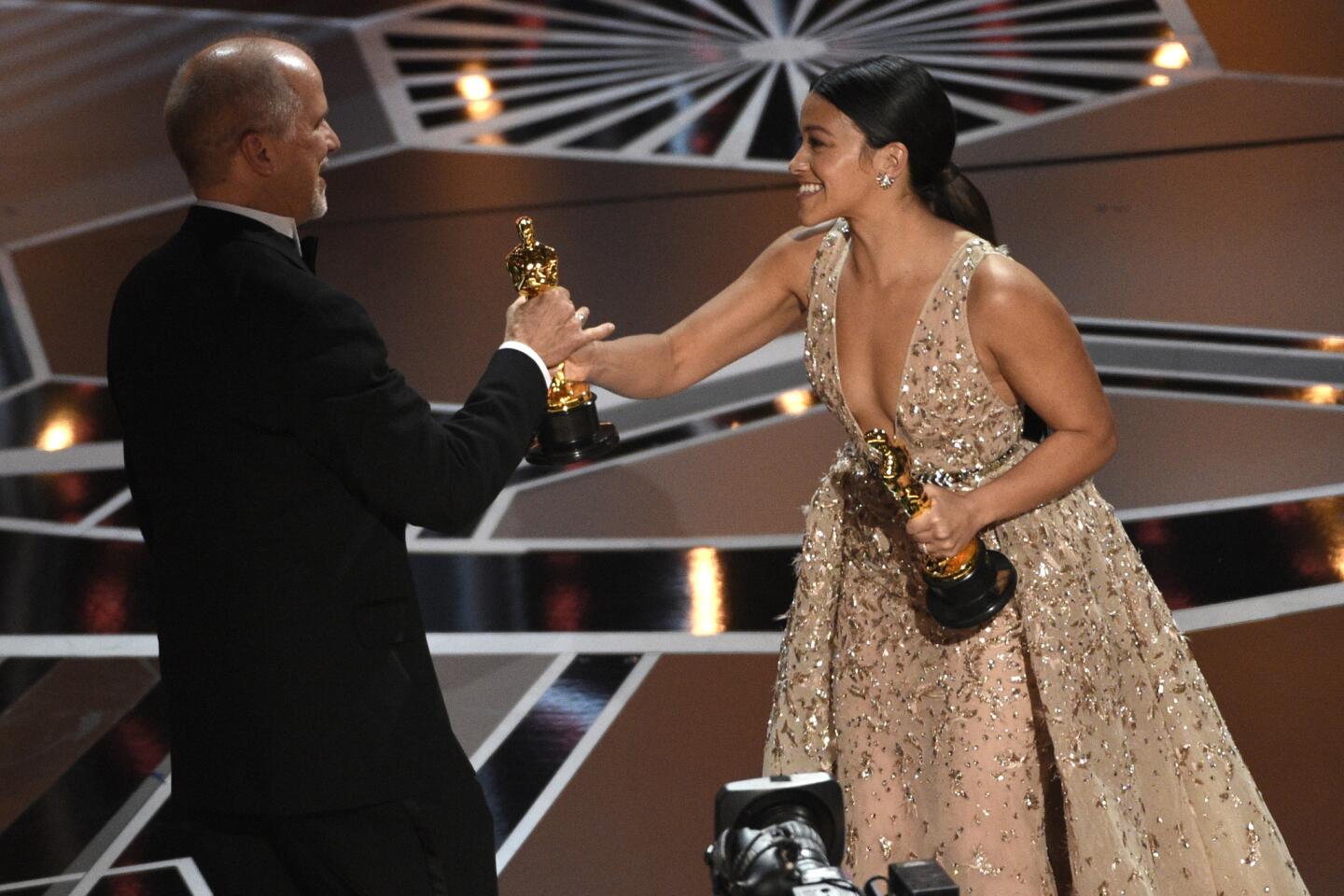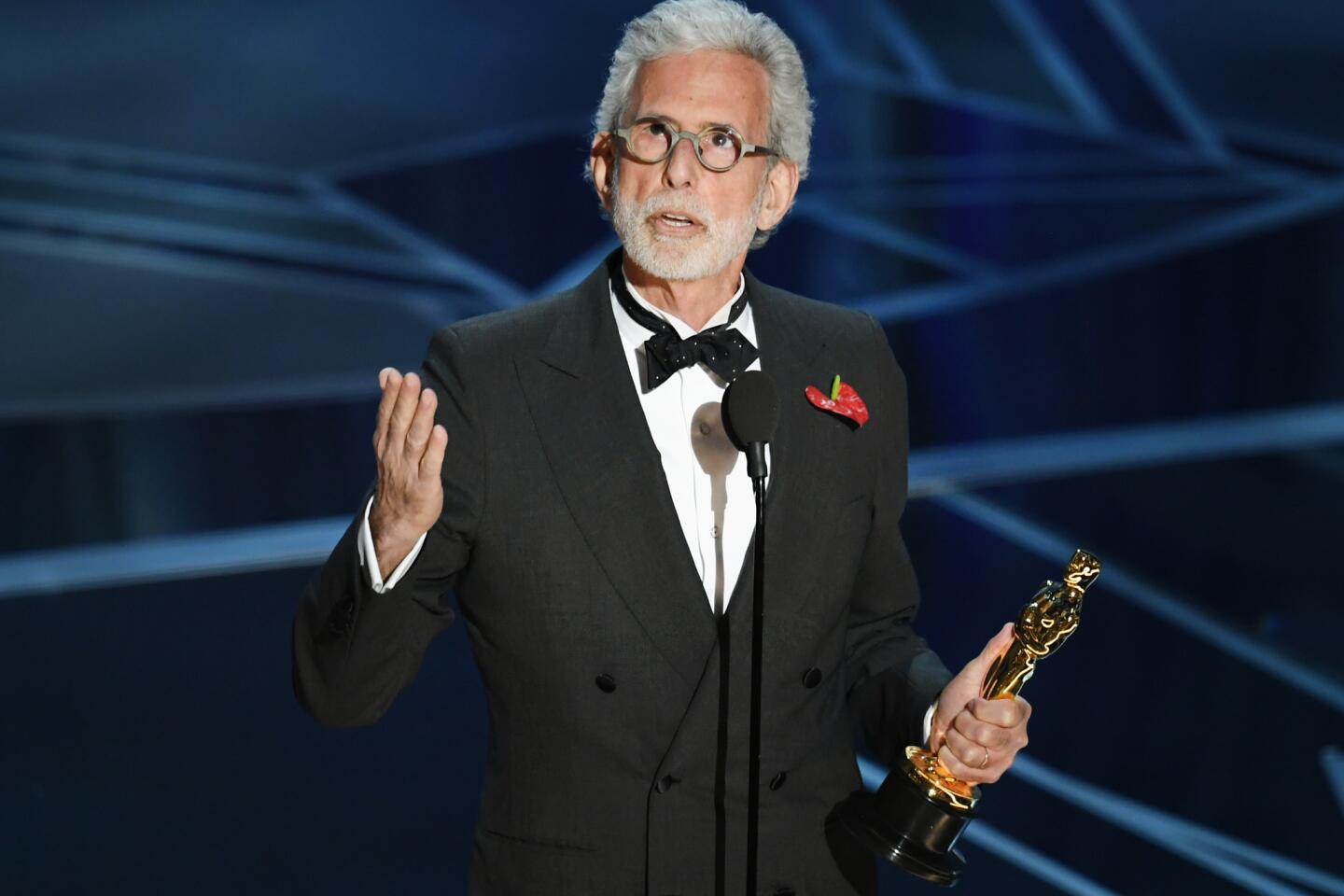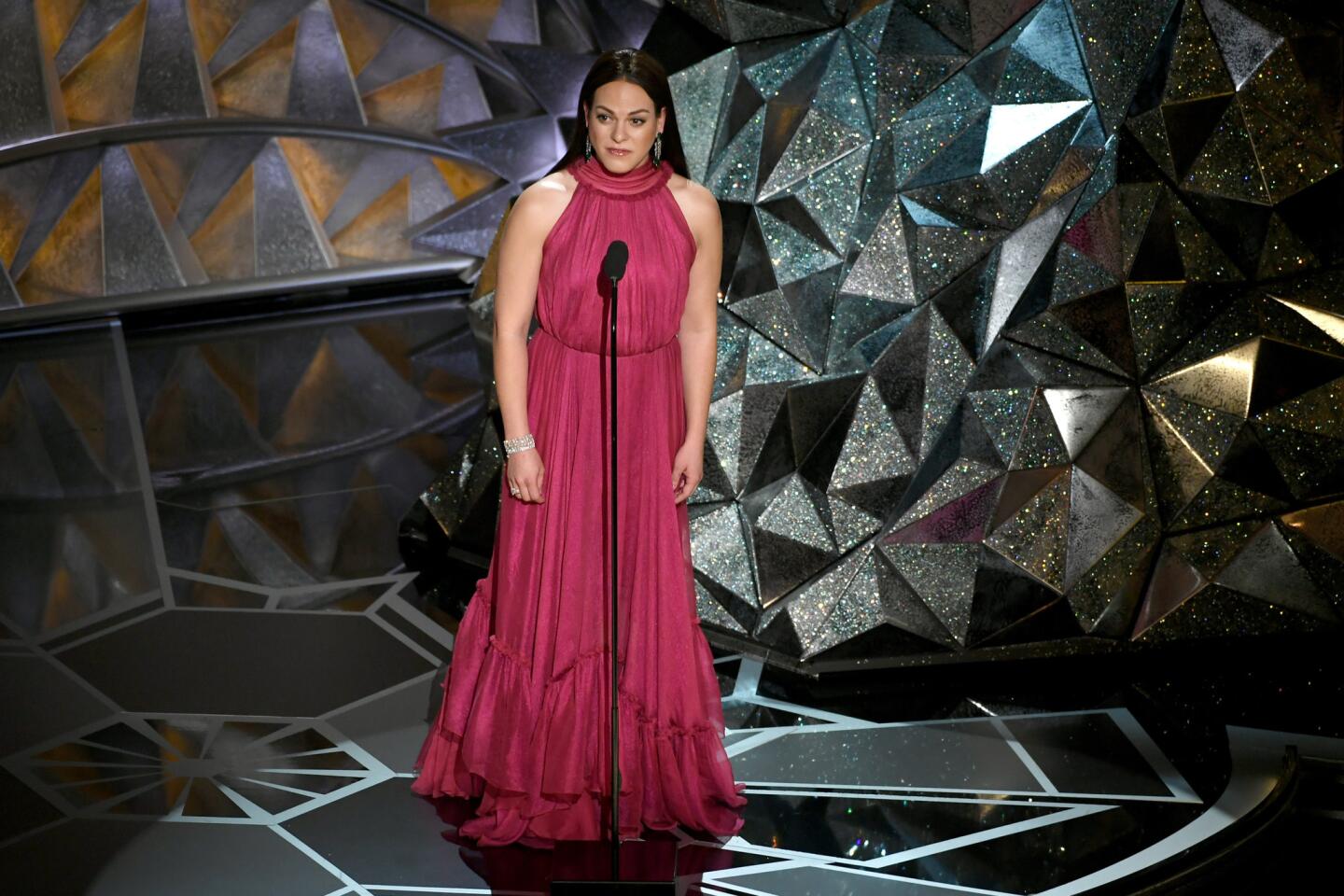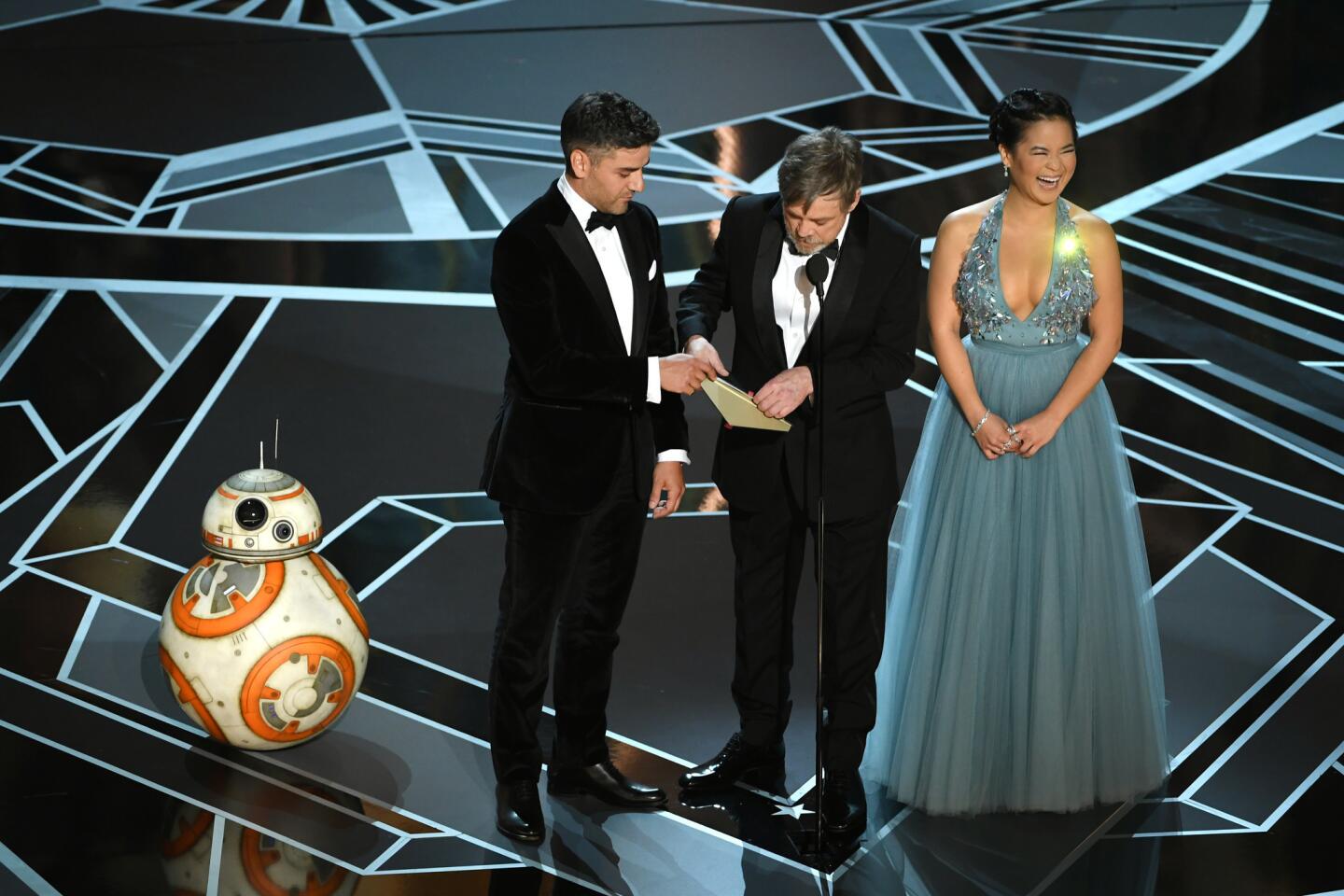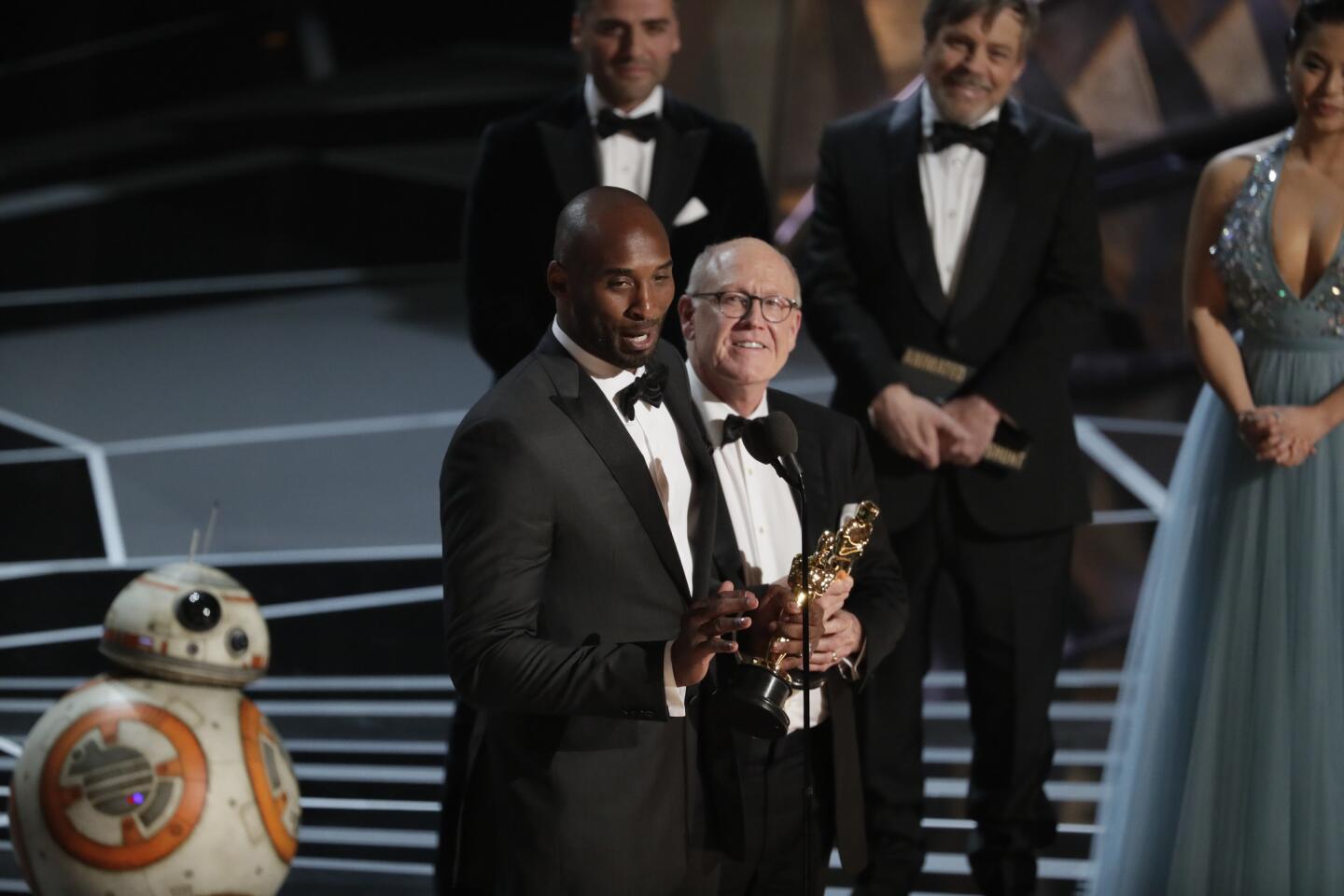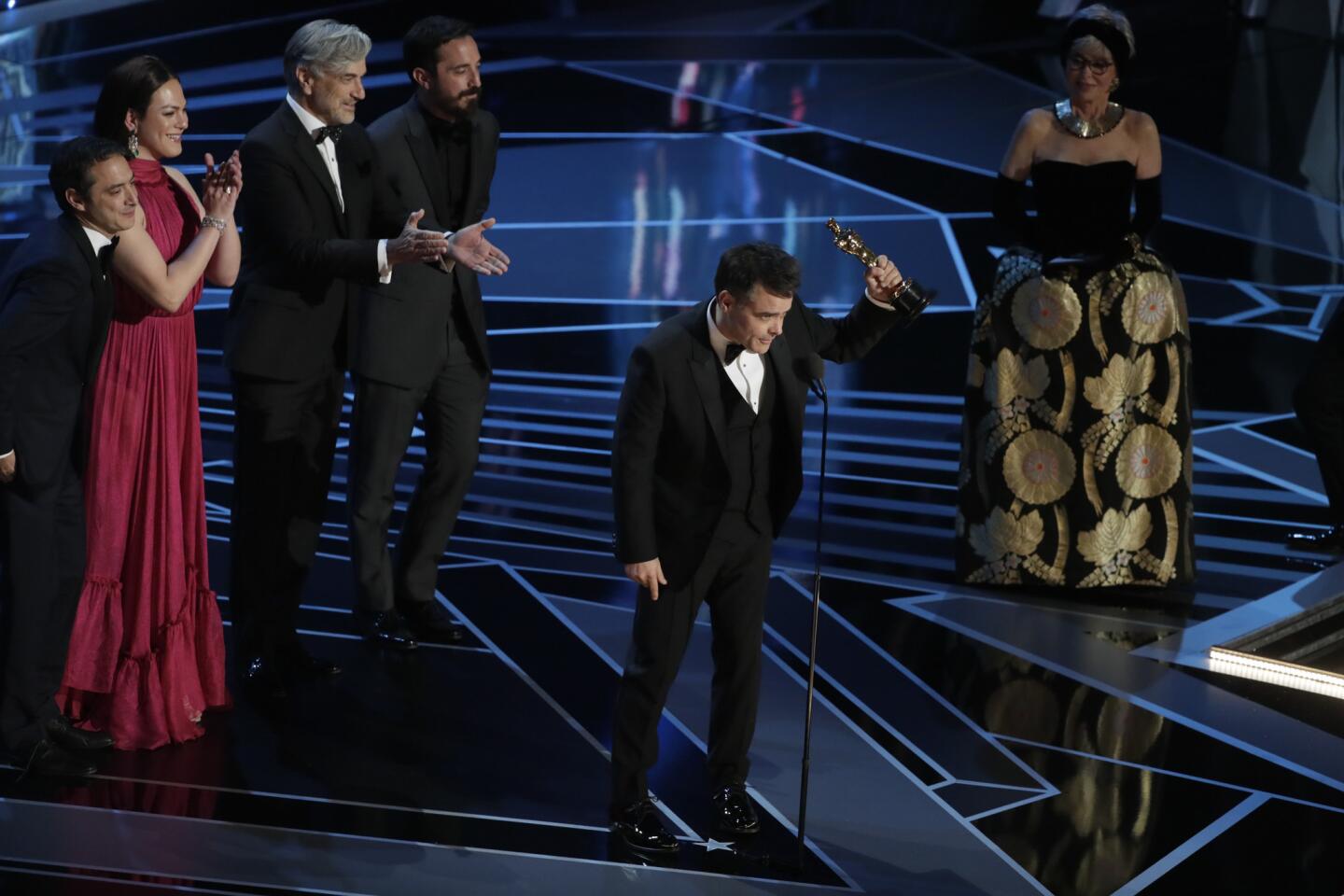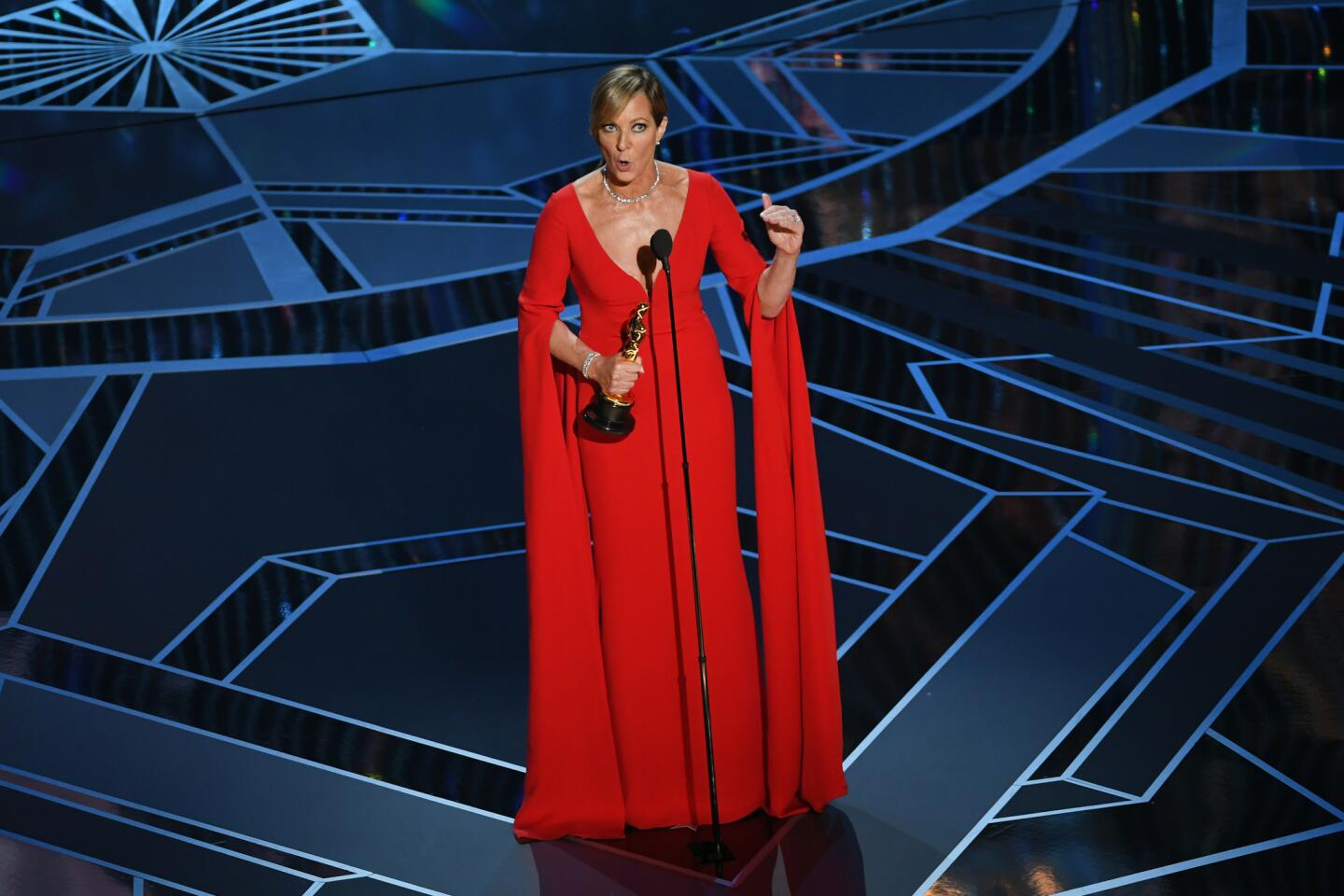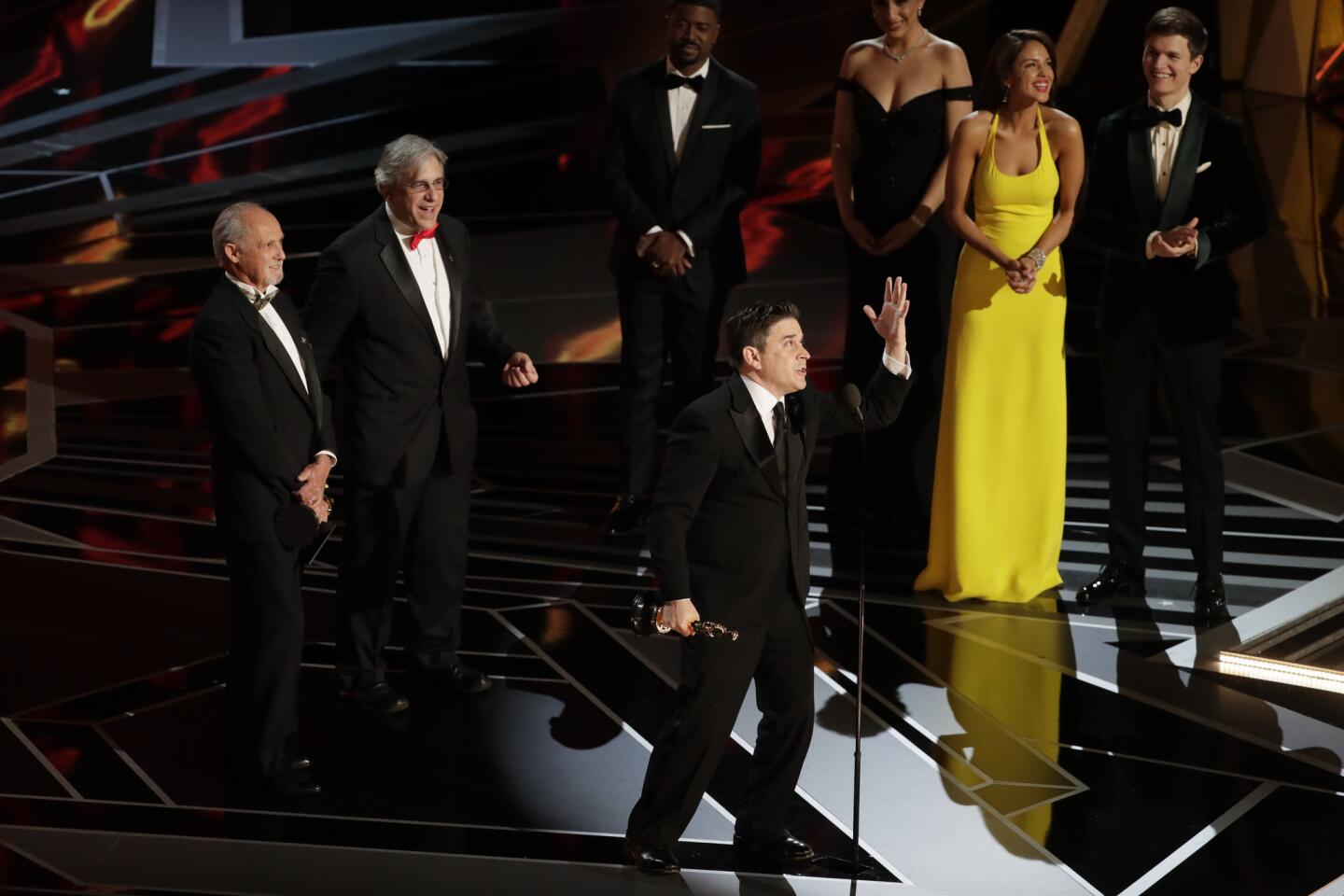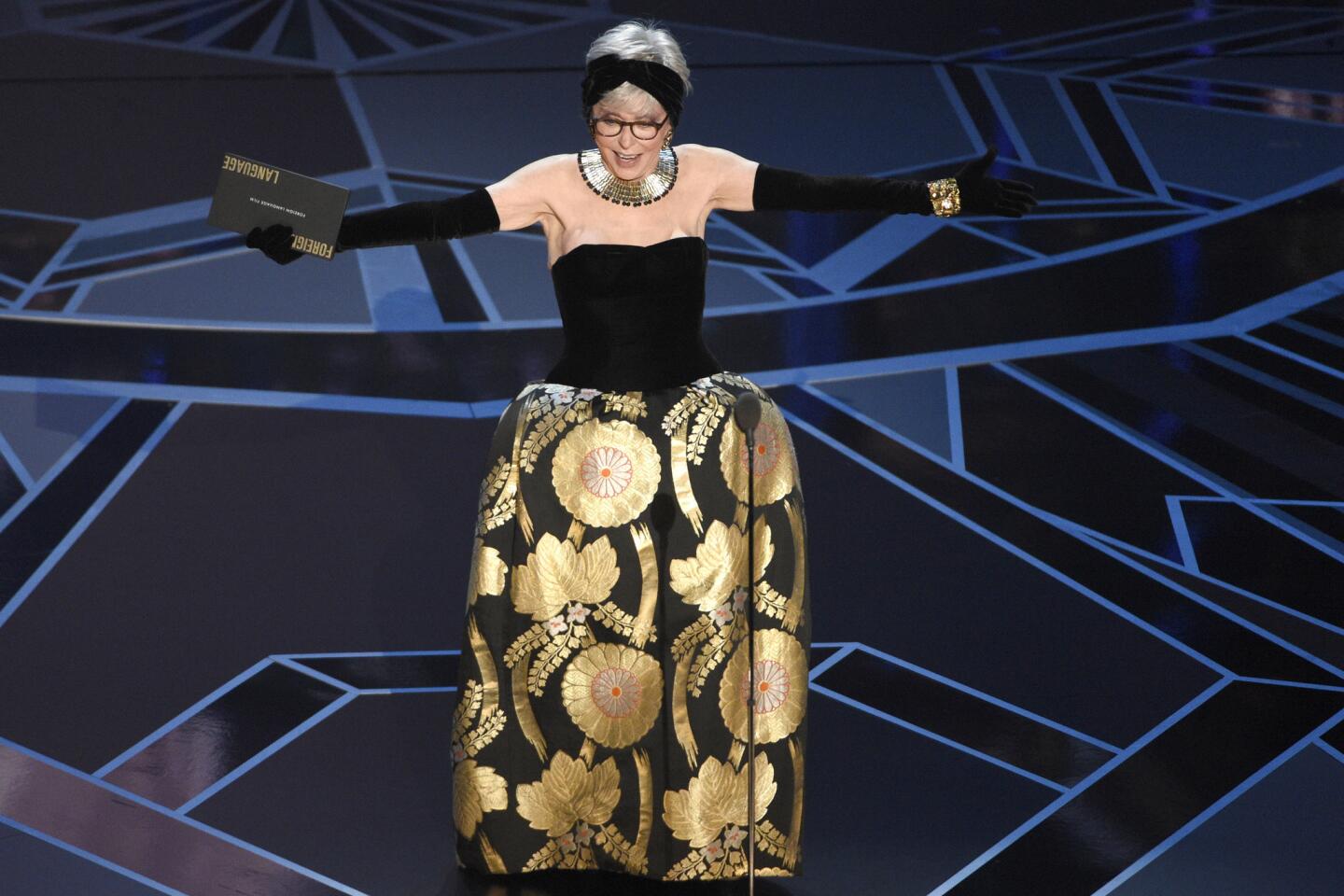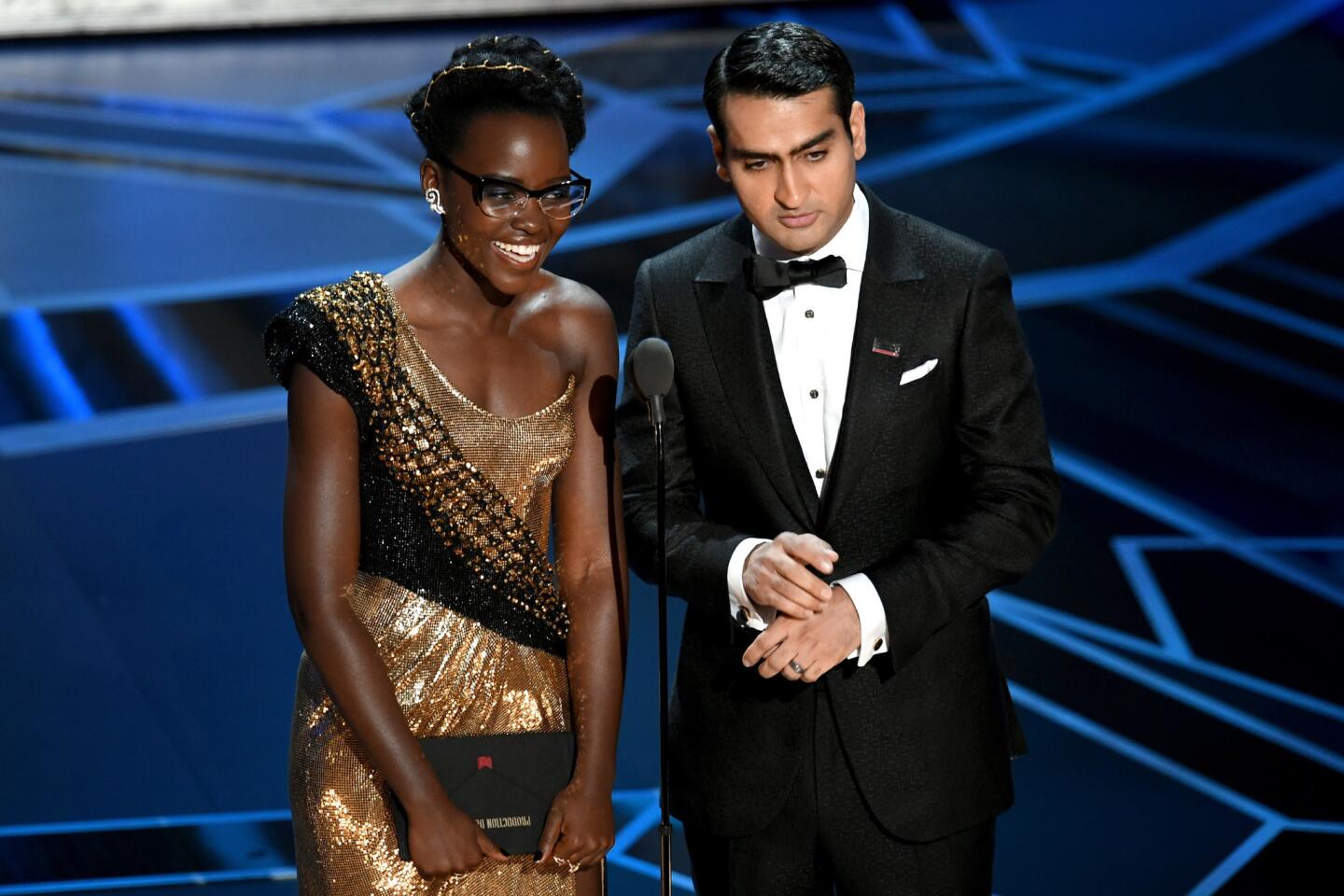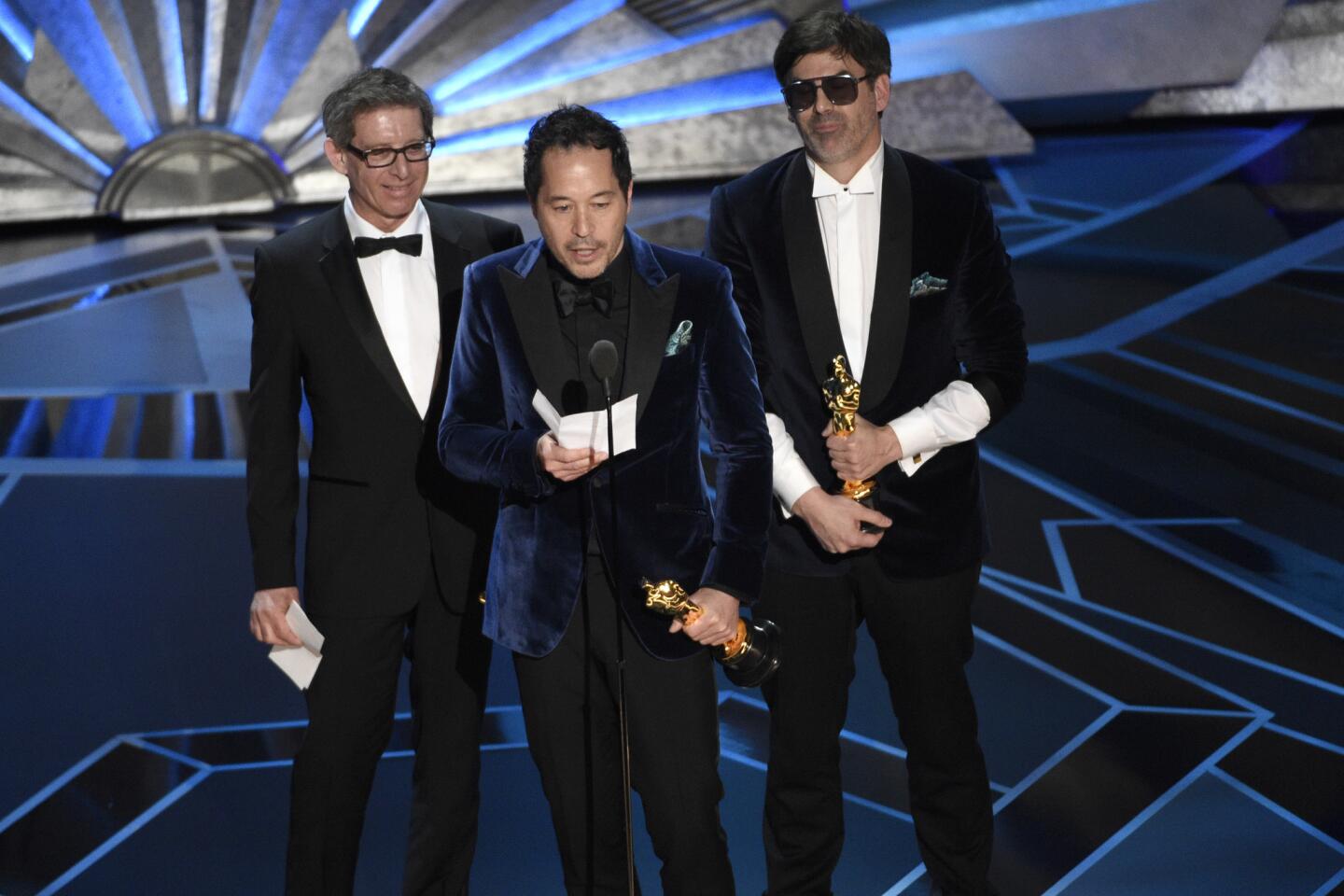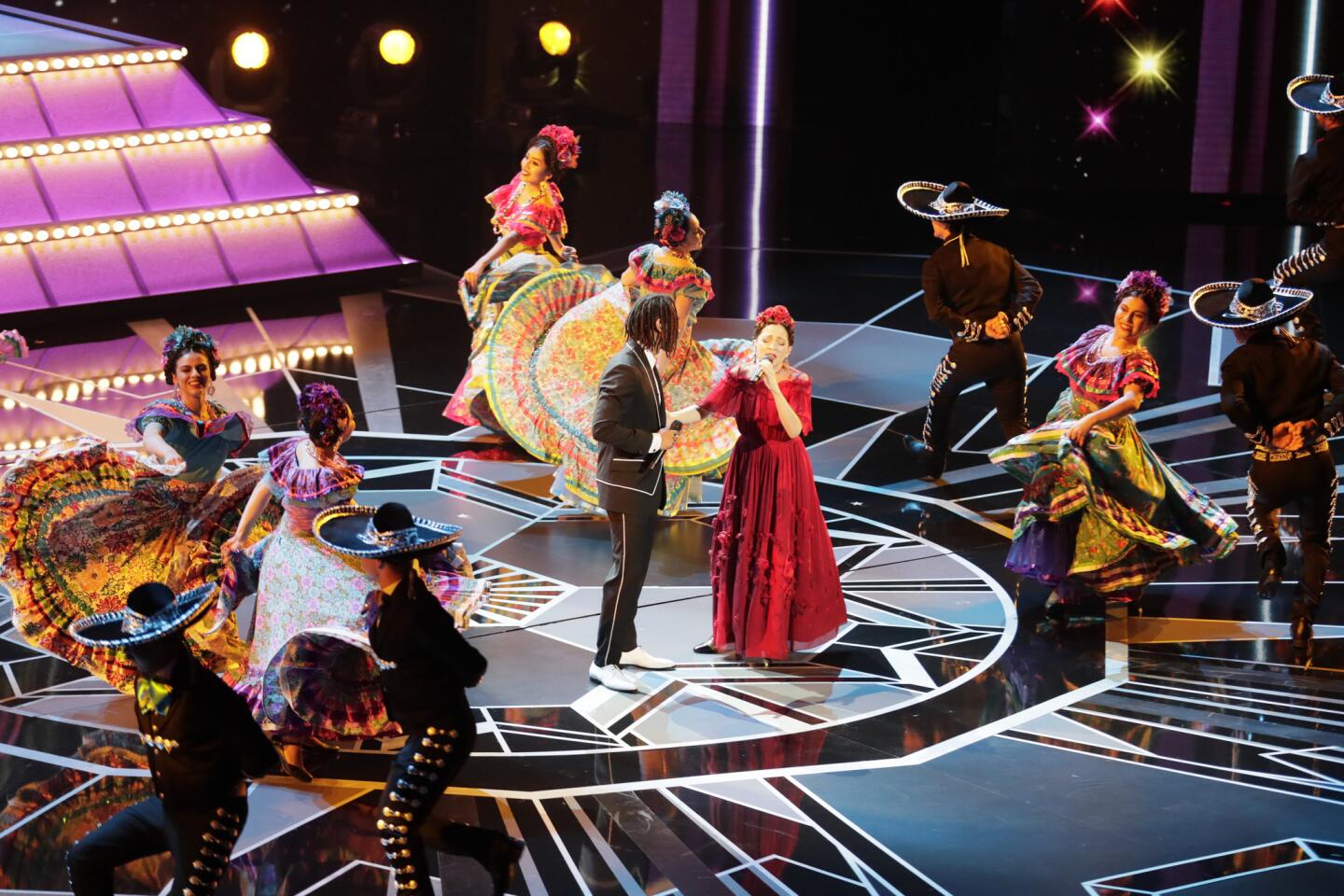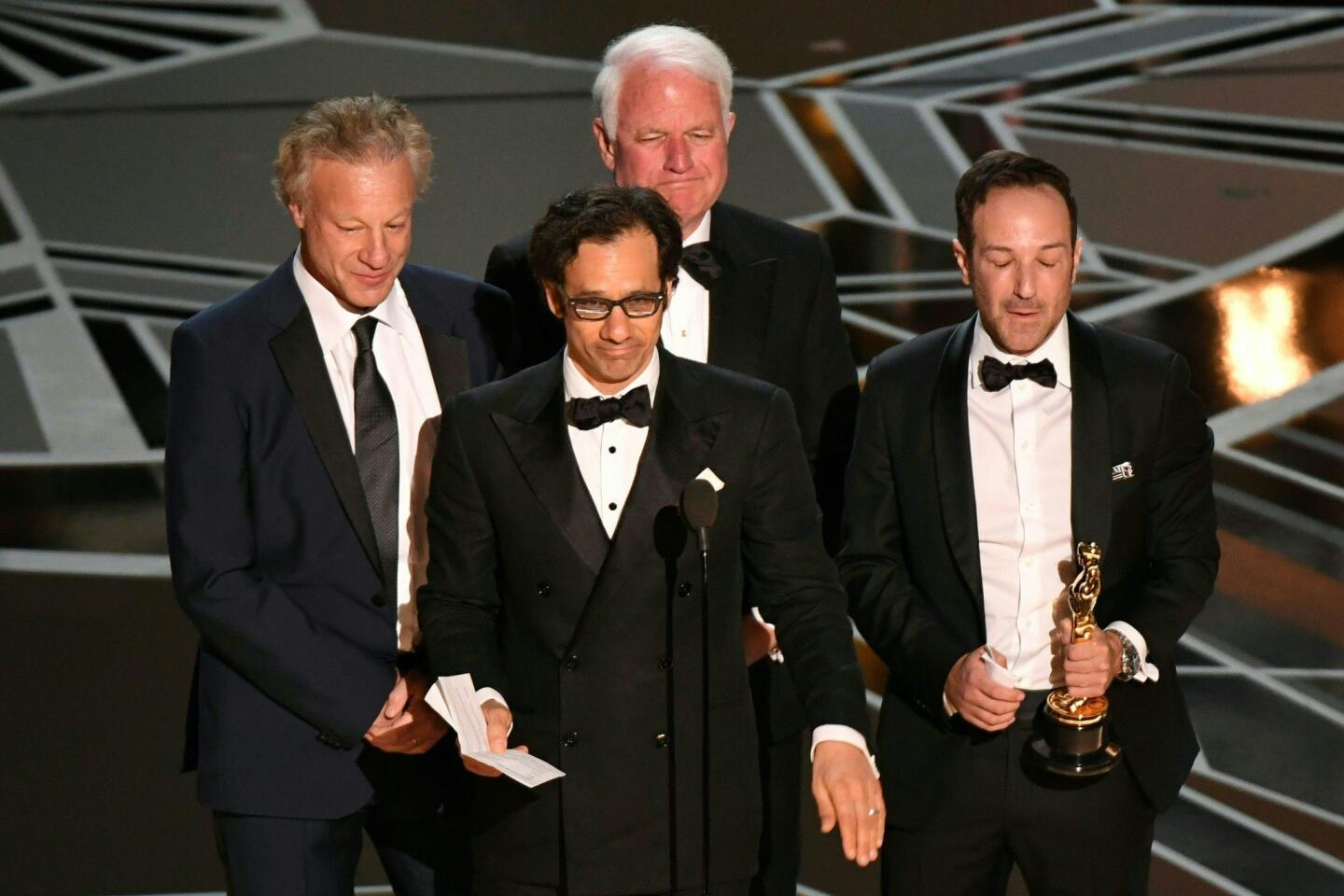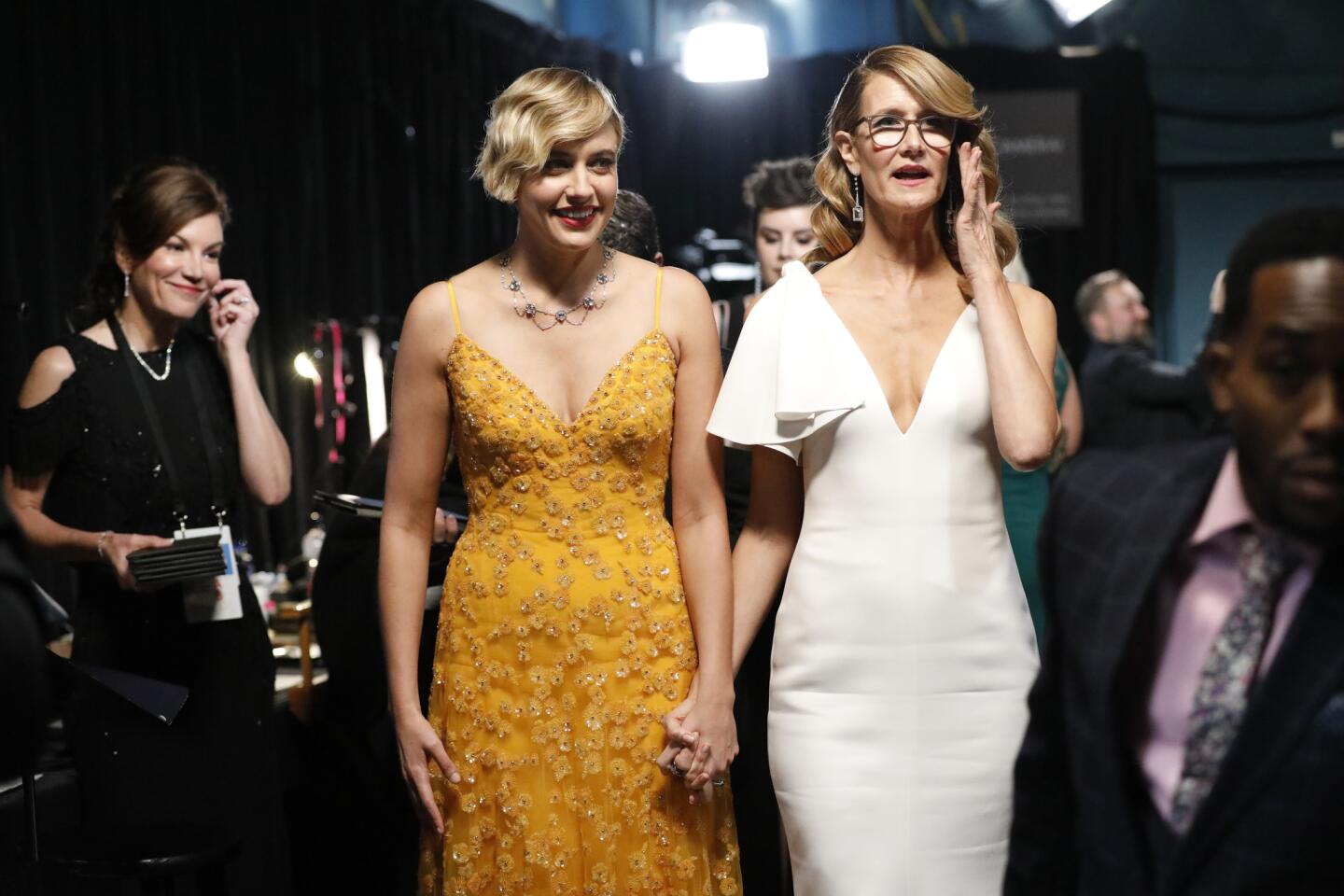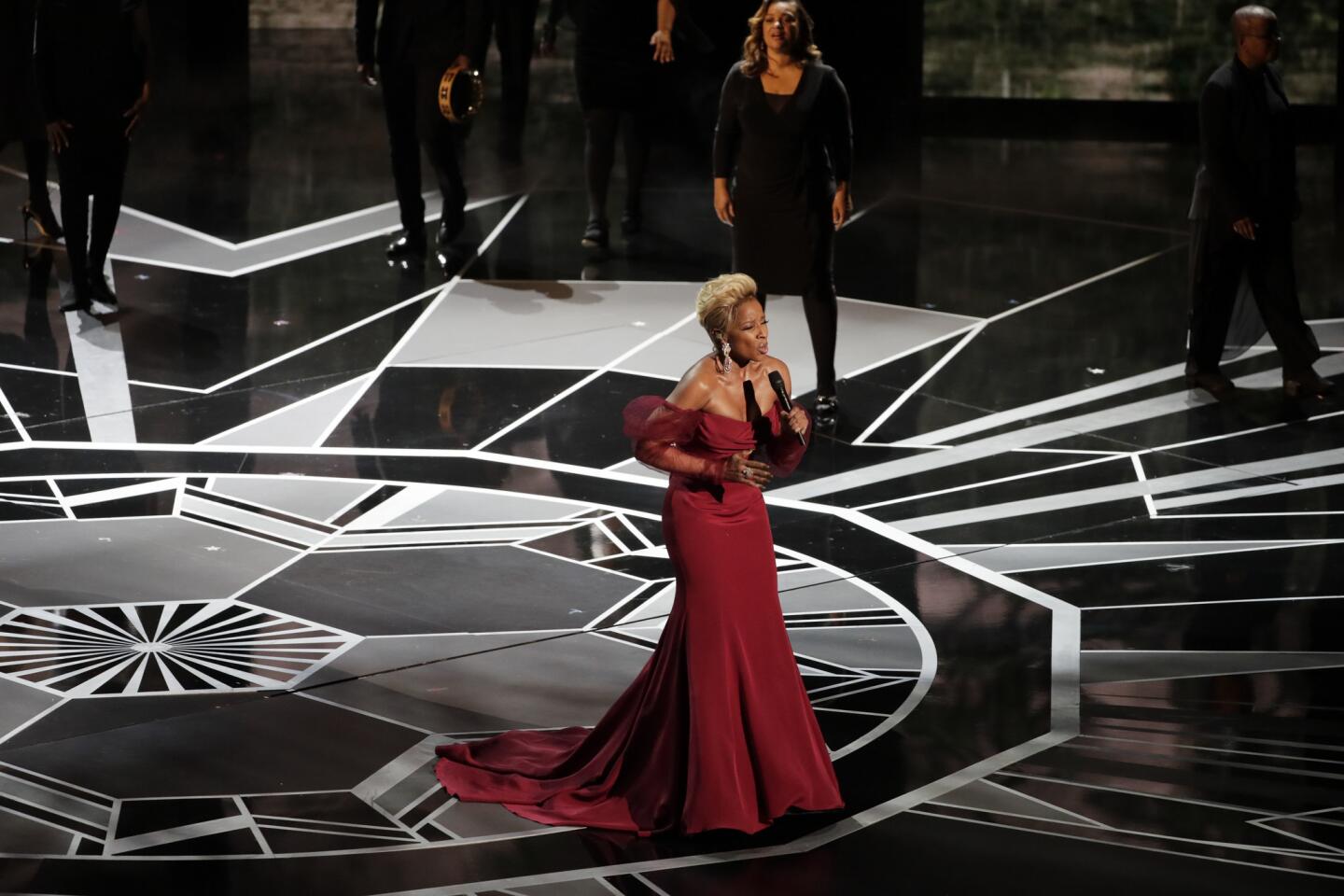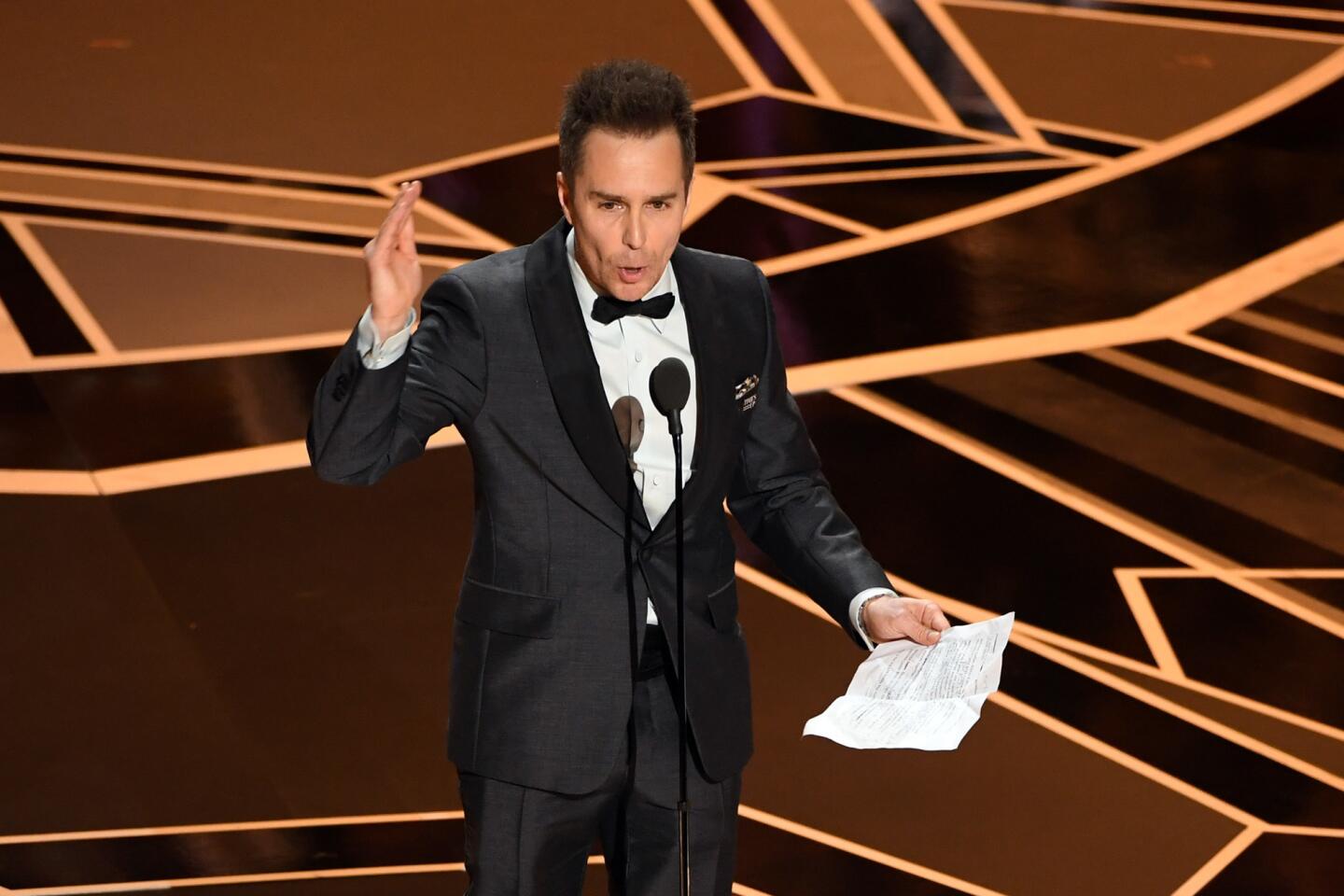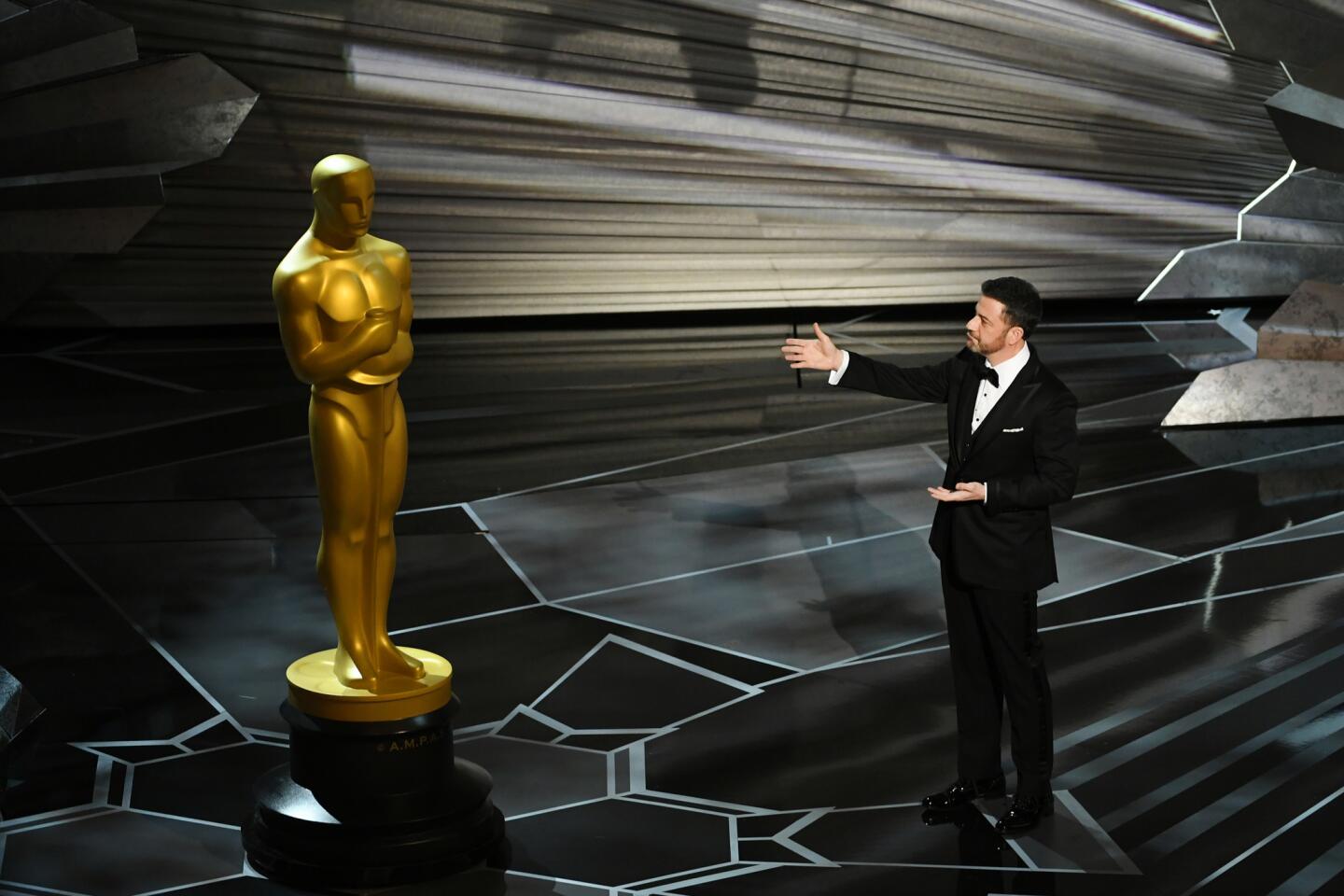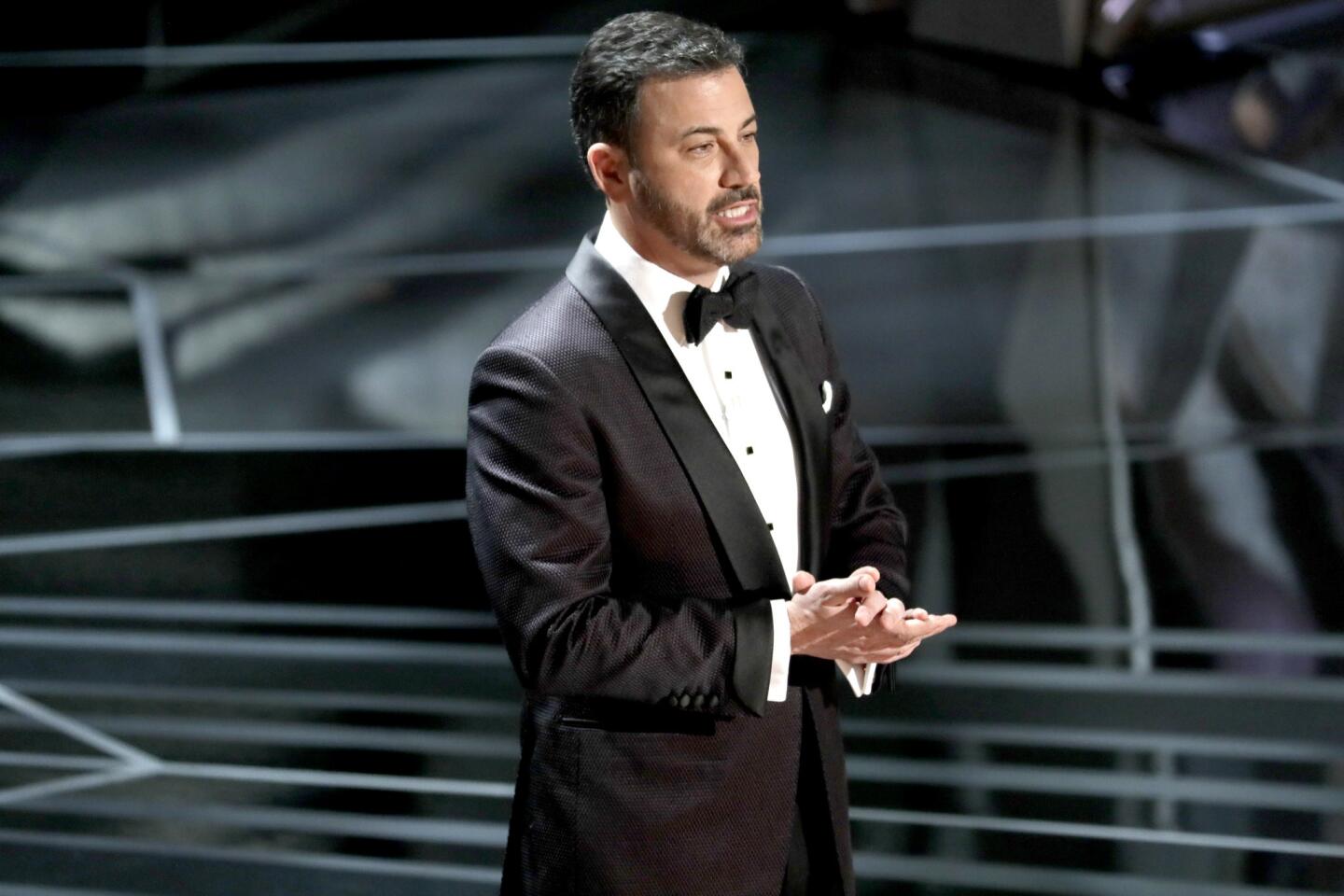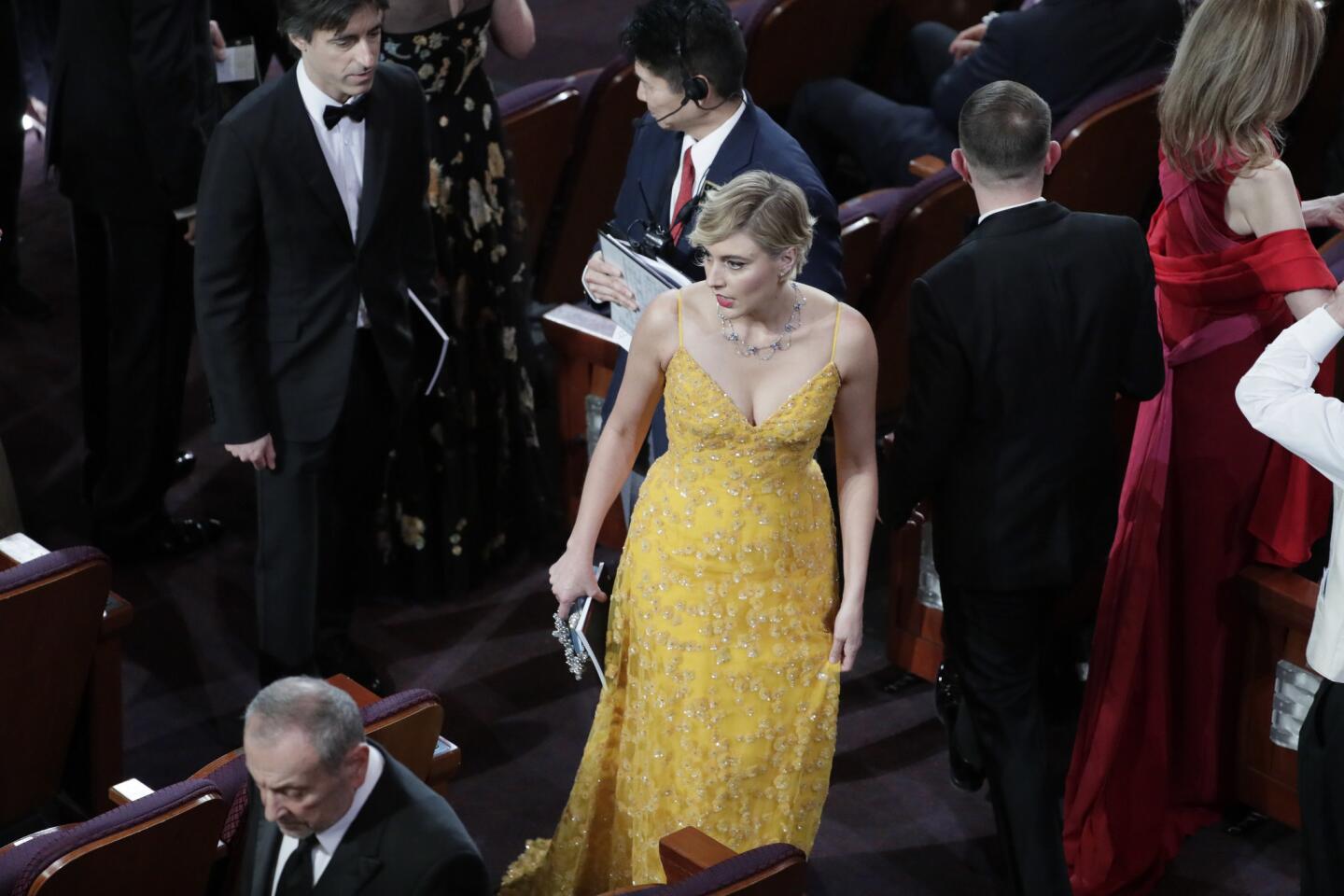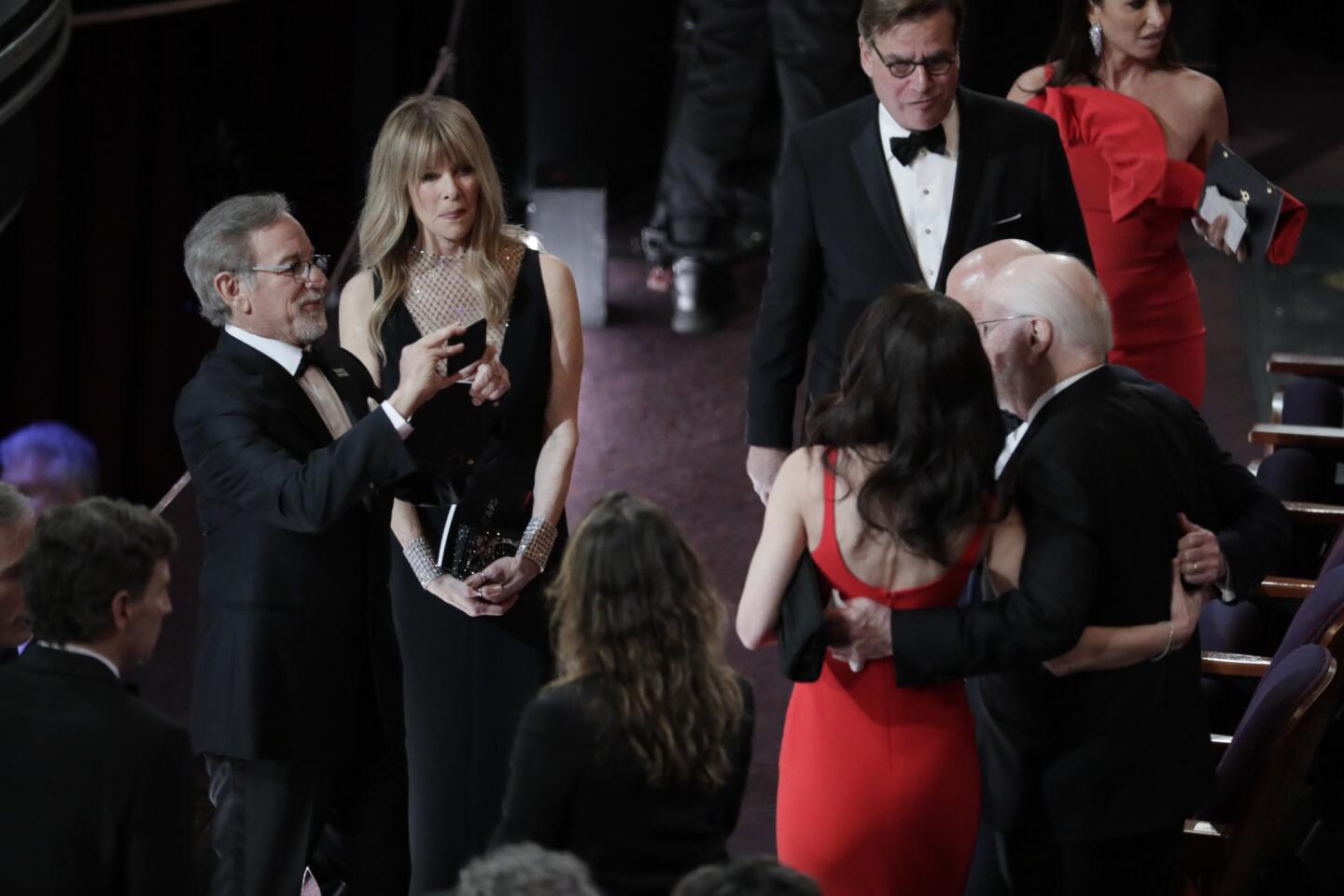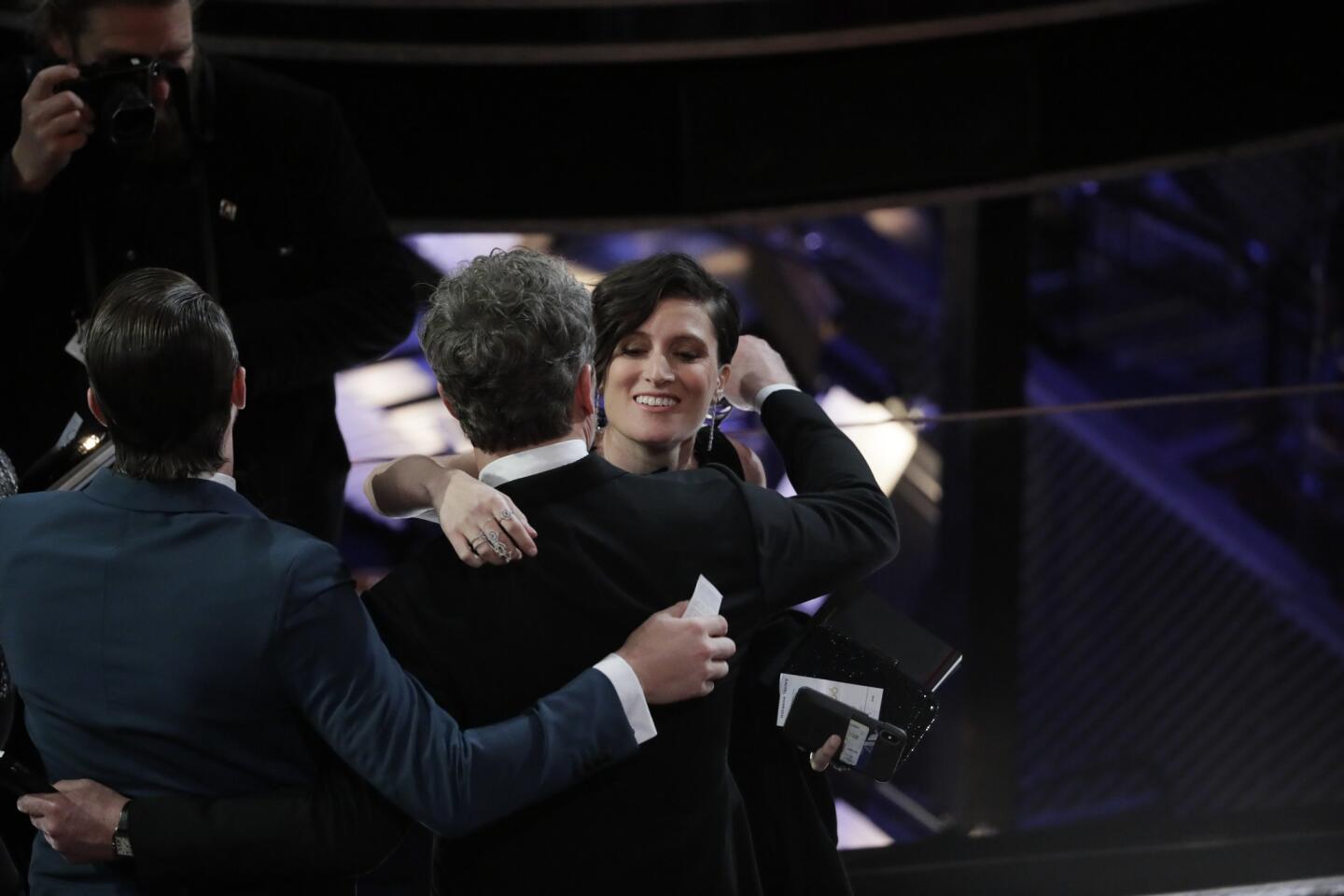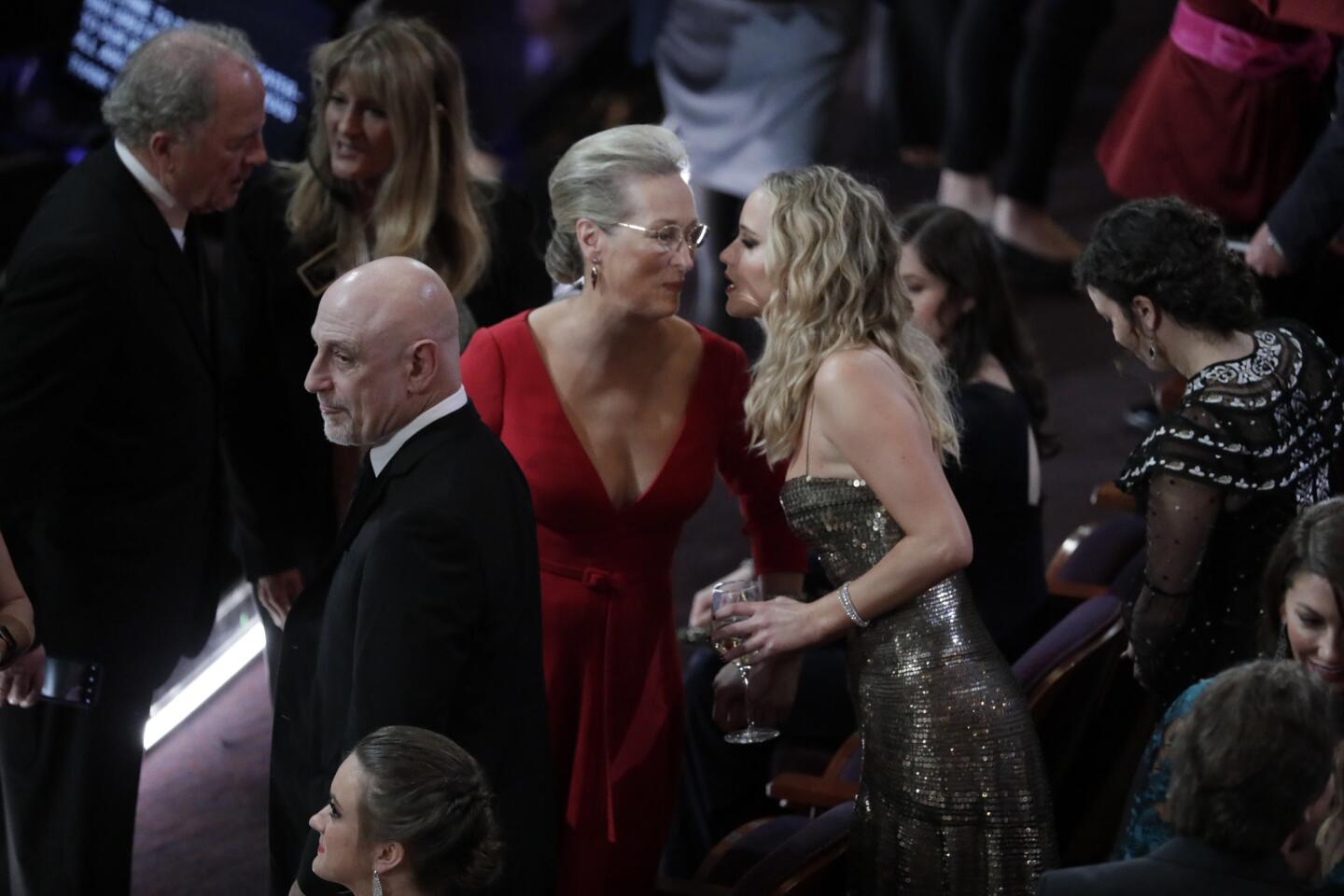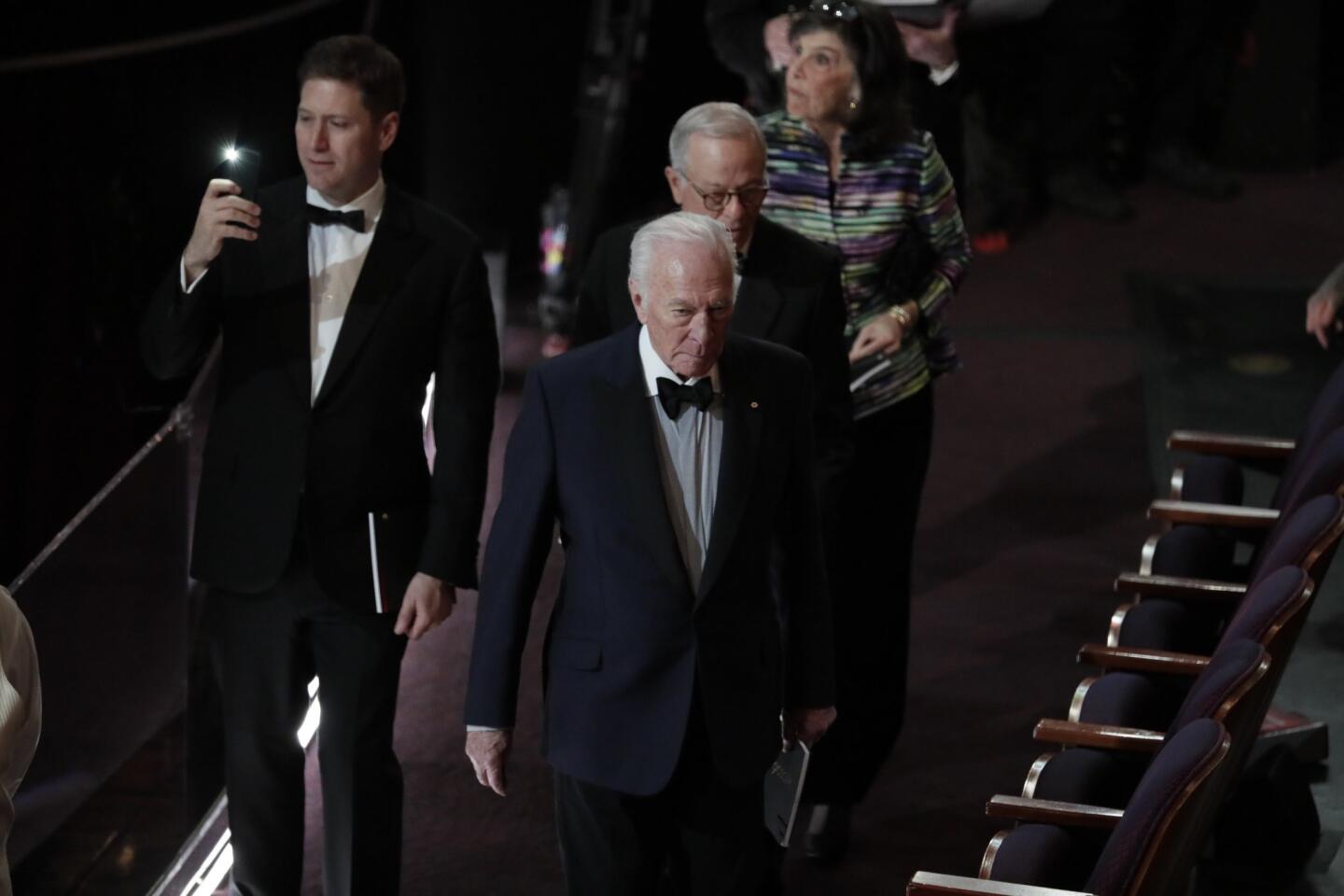There is a moment in the Chilean film “A Fantastic Woman” when a transgender singer stands onstage and lifts her voice, an unwavering call that rises above the cruelties and prejudices she’s encountered in a country that has scorned her identity, ridiculed her love and chipped away at her pride.
Sebastián Lelio’s story, which won the Academy Award for foreign-language film, is an unrepentant fable in a time when transgender people and others in the LGBTQ community are demanding wider rights in countries, including Chile, that have treated them as deviants and curiosities. The film follows Marina (played by transgender actress Daniela Vega) in a quiet rebellion for dignity against condescension and relentless humiliation.
“I’m on Jupiter. I can’t believe that this happened,” Lelio said of his Oscar. “It is a film that has managed to contribute to a necessary and urgent conversation.”
FULL COVERAGE: Academy Awards 2018 | Red carpet | Winners room | Backstage
“A Fantastic Woman” opens with Marina and her lover Orlando (Francisco Reyes) out on a date in Santiago. Things turn tragic when Orlando falls ill and dies. Marina grieves but also endures the scorn — both pointed and subtle — of a woman who is held in suspicion by Orlando’s family and the police. She moves through the story stunned but with the accustomed indignation that comes with being “the other.” In one scene, investigators subject her to a strip search, embarrassing her in the glare of florescent light.
Orlando’s ex-wife, Sonia (Aline Küppenheim), tells Marina with disdain: “When I look at you. I don’t know what I’m seeing.”
But she is unbroken; each slight brings a renewed resolve that has made the movie a bellwether for the transgender movement.
The first film from Chile to win an Academy Award in the foreign category, “A Fantastic Woman” is Lelio’s latest meditation of those at the edges. His 2013 international hit “Gloria” explored similar themes in the story of a middle-aged divorcee riding the joys, insecurities and indignities of a new romance. But the stakes are higher and the redemption more socially poignant for civil rights and gender equality in “Woman.”
1/63
Costume designer Mark Bridges (“Phantom Thread”), with Helen Mirren in tow, rides onstage with the jet ski he won for having the fastest winners’ speech during the telecast of the 90th Academy Awards.
(Robert Gauthier / Los Angeles Times) 2/63
Guillermo del Toro and the cast of “The Shape of Water” assemble onstage after the film wins the top prize at the 90th Academy Awards on Sunday.
(Robert Gauthier / Los Angeles Times) 3/63
Guillermo del Toro celebrates the power of storytelling as he accepts the Oscar for directing “The Shape of Water.”.
(Robert Gauthier / Los Angeles Times) 4/63
Jimmy Kimmel and Mark Hamill walk among the crowd during the telecast of the 90th Academy Awards.
(Robert Gauthier / Los Angeles Times) 5/63
Actors Faye Dunaway and Warren Beatty prepare to announce the best picture winner at the 90th Academy Awards.
(Kevin Winter / Getty Images) 6/63
Ashley Judd, from left, Annabella Sciorra and Salma Hayek present a Time’s Up segment during the telecast of the 90th Academy Awards.
(Robert Gauthier / Los Angeles Times) 7/63
Jane Fonda and Helen Mirren present the Oscar for lead actor.
(Robert Gauthier / Los Angeles Times) 8/63
Jodie Foster, left, and Jennifer Lawrence present the award for lead actress, stepping in after Casey Affleck withdrew from the show.
(Robert Gauthier / Los Angeles Times) 9/63
Nominees Margot Robbie, Saoirse Ronan, Sally Hawkins and Meryl Streep hug after the lead actress award, which went to Frances McDormand, was announced.
(Robert Gauthier / Los Angeles Times) 10/63
Frances McDormand accepts the award for lead actress for “Three Billboards Outside Ebbing, Missouri” at the Oscars at the Dolby Theatre in Hollywood, then prepares to say a few things.
(Robert Gauthier / Los Angeles Times) 11/63
Gary Oldman accepts his Oscar for lead actor in “Darkest Hour.”
(Mark Ralston / AFP/Getty Images) 12/63
Keala Settle performs during the 90th Academy Awards at Hollywood & Highland in Hollywood.
(Robert Gauthier / Los Angeles Times) 13/63
Performers with Keala Settle wander into the audience during the telecast of the 90th Academy Awards.
(Robert Gauthier / Los Angeles Times) 14/63
Actress Nicole Kidman prepares to present the Oscar for original screenplay.
(Robert Gauthier / Los Angeles Times) 15/63
Guillermo del Toro delivers a speech after he won the directing Oscar for “The Shape of Water.”
(Mark Ralston / AFP/Getty Images) 16/63
French composer Alexandre Desplat accepts his Oscar for original score for “The Shape of Water.”
(Mark Ralston / AFP/Getty Images) 17/63
Kristen Anderson-Lopez and Robert Lopez are overcome after winning original song for “Remember Me” from the animated film “Coco” during the 90th Academy Awards.
(Robert Gauthier / Los Angeles Times) 18/63
Roger Deakins wins the Oscar for cinematography for “Blade Runner 2049” at the 90th Academy Awards.
(Robert Gauthier / Los Angeles Times) 19/63
Writer-director Jordan Peele holds his Oscar for original screenplay for “Get Out” during the telecast of the 90th Academy Awards.
(Robert Gauthier / Los Angeles Times) 20/63
Lin-Manuel Miranda, left, and Emily Blunt present the award for best original song at the Oscars.
(Chris Pizzello / Invision / Associated Press) 21/63
Writer-director Jordan Peele is congratulated by “Get Out” star Daniel Kaluuya for winning the Oscar for original screenplay.
(Robert Gauthier / Los Angeles Times) 22/63
Eddie Vedder performs during the “In Memoriam” tribute at the Oscars at the Dolby Theatre.
(Robert Gauthier / Los Angeles Times) 23/63
The crowd reacts as James Ivory wins the Oscar for adapted screenplay for “Call Me by Your Name” during the telecast of the 90th Academy Awards.
(Robert Gauthier / Los Angeles Times) 24/63
Common and Andra Day perform a song from “Marshall” during the telecast of the 90th Academy Awards.
(Robert Gauthier / Los Angeles Times) 25/63
Lee Smith wins the film editing Oscar for “Dunkirk,” with presenter Matthew McConaughey leading him offstage.
(Robert Gauthier / Los Angeles Times) 26/63
Nicole Kidman steps onto the stage to present the award for original screenplay at the Oscars.
(Chris Pizzello / Invision / Associated Press) 27/63
Actors Chadwick Boseman and Margot Robbie speak onstage during the 90th Academy Awards at the Dolby Theatre.
(Kevin Winter / Getty Images) 28/63
Sufjan Stevens sings during the telecast of the 90th Academy Awards.
(Robert Gauthier / Los Angeles Times) 29/63
Actor Matthew McConaughey speaks during the 90th Academy Awards at the Dolby Theatre.
(Kevin Winter / Getty Images) 30/63
Filmmakers Rachel Shenton and Chris Overton accept the Academy Award for live action short film for “The Silent Child.”
(Kevin Winter / Getty Images) 31/63
Comedian Dave Chappelle speaks onstage during the 90th Academy Awards at the Dolby Theatre.
(Kevin Winter / Getty Images) 32/63
Tiffany Haddish, left, and Maya Rudolph present the award for best documentary short subject at the Oscars.
(Chris Pizzello / Invision / Associated Press) 33/63
Gina Rodriguez presents John Nelson with the award for visual effects for “Blade Runner 2049” at the Oscars.
(Chris Pizzello / Invision / Associated Press) 34/63
Filmmaker Frank Stiefel accepts the Acaemy Award for short subject documentary for “Heaven Is a Traffic Jam on the 405.”
(Kevin Winter / Getty Images) 35/63
Daniela Vega, star of foreign-language Oscar winner “A Fantastic Woman,” introduces a song performance during the 90th Academy Awards.
(Kevin Winter / Getty Images) 36/63
Actor Matthew McConaughey introduces the film editing nominees onstage during the 90th Academy Awards at the Dolby Theatre at Hollywood & Highland Center.
(Kevin Winter / Getty Images) 37/63
“The Last Jedi’s” BB-8 accompanies actors Oscar Isaac, Mark Hamill and Kelly Marie Tran onstage during the 90th Academy Awards at the Dolby Theatre at Hollywood & Highland Center in L.A.
(Kevin Winter / Getty Images) 38/63
NBA champ Kobe Bryant, left, and Glen Keane accept the Academy Award for animated short film for “Dear Basketball.”
(Robert Gauthier / Los Angeles Times) 39/63
Host Jimmy Kimmel interacts with his 9-year-old self in a skit during the telecast of the 90th Academy Awards.
(Robert Gauthier / Los Angeles Times) 40/63
Director Sebastián Lelio accepts the Oscar for foreign-language film “A Fantastic Woman” from Chile.
(Robert Gauthier / Los Angeles Times) 41/63
Allison Janney accepts the supporting actress Academy Award for “I, Tonya” during the 90th Academy Awards at the Dolby Theatre.
(Kevin Winter / Getty Images) 42/63
Mark Rizzo, left, Gregg Landaker and Mark Weingarten win the Academy Award for sound mixing for “Dunkirk.”
(Robert Gauthier / Los Angeles Times) 43/63
Rita Moreno presents the award for best foreign language film at the Oscars.
(Chris Pizzello / Invision / Associated Press) 44/63
Presenters Lupita Nyong’o and Kumail Nanjiani give a shout-out to “all the Dreamers out there” onstage during the 90th Academy Awards at the Dolby Theatre.
(Kevin Winter / Getty Images) 45/63
Jeffrey A. Melvin, from left, Paul Denham Austerberry and Shane Vieau accept the Academy Award for production design for “The Shape of Water.”
(Chris Pizzello / Invision / Associated Press) 46/63
Singers Miguel and Natalia Lafourcade perform “Remember Me” from the animated film “Coco” onstage during the 90th Academy Awards at the Dolby Theatre.
(Robert Gauthier / Los Angeles Times) 47/63
Natalia Lafourcade and Miguel perform on a colorful stage during the 90th Academy Awards at the Dolby Theatre.
(Kevin Winter / Getty Images) 48/63
Actors Eiza Gonzalez and Ansel Elgort walk onstage during the 90th Academy Awards at the Dolby Theatre at Hollywood & Highland Center.
(Kevin Winter / Getty Images) 49/63
Director Bryan Fogel, right, celebrates next to producer Dan Cogan, bottom, after they won the Oscar for documentary feature for “Icarus” during the 90th Academy Awards.
(Mark Ralston / AFP/Getty Images) 50/63
Greta Gerwig, left, and Laura Dern walk onstage to present the award for best documentary feature at the Oscars.
(Al Seib / Los Angeles Times) 51/63
Taraji P. Henson speaks onstage, introducing a performance by Mary J. Blige, during the 90th Academy Awards at the Dolby Theatre.
(Kevin Winter / Getty Images) 52/63
Mary. J Blige performs “Mighty River” from “Mudbound” at the Oscars.
(Robert Gauthier / Los Angeles Times) 53/63
Sam Rockwell accepts the suppoorting actor Academy Award for “Three Billboards Outside Ebbing, Missouri,” at the 90th Academy Awards at the Dolby Theatre at the Hollywood & Highland Center.
(Kevin Winter / Getty Images) 54/63
Actress Helen Mirren presents the jet ski that Oscar winners could take home if they have the shortest speech during the 90th Academy Awards.
(Kevin Winter / Getty Images) 55/63
Host Jimmy Kimmel motions towards the Oscar statue, speaking about its characteristics that make Oscar “the ideal man,” during the opening monologue during the 90th Academy Awards.
(Kevin Winter / Getty Images) 56/63
Host Jimmy Kimmel delivers his opening monologue at the 90th Academy Awards.
(Robert Gauthier / Los Angeles Times) 57/63
Host Jimmy Kimmel speaks onstage during the 90th Academy Awards.
(Kevin Winter / Getty Images) 58/63
Someone dressed as the amphibious creature from “The Shape of Water” is guided through the crowd during the telecast of the 90th Academy Awards.
(Robert Gauthier / Los Angeles Times) 59/63
Director Greta Gerwig walks through the crowd in the Dolby Theatre at Hollywood & Highland Center in Hollywood before the Academy Awards show begins.
(Robert Gauthier / Los Angeles Times) 60/63
Director Steven Spielberg takes a photo with his phone during the telecast of the 90th Academy Awards.
(Robert Gauthier / Los Angeles Times) 61/63
“Mudbound” and “Black Panther” cinematographer Rachel Morrison greets others before the telecast of the 90th Academy Awards in the Dolby Theatre.
(Robert Gauthier / Los Angeles Times) 62/63
Meryl Streep greets Jennifer Lawrence before the telecast of the 90th Academy Awards in the Dolby Theatre at Hollywood & Highland Center.
(Robert Gauthier / Los Angeles Times) 63/63
Christopher Plummer looks for his seat before the telecast of the 90th Academy Awards.
(Robert Gauthier / Los Angeles Times) “I didn’t make a casting decision as a fascist decision but as an act of freedom,” said Lelio of his choice of Vega to star. “Casting is an art. The presence of Daniela brought a quality to the story that adds a layer of complexity and beauty that I think a cisgender actor would not have been capable of bringing.”
He added: “I never thought that [casting her] was going to be that important, in the sense of how the film is perceived. I’ve been very surprised and happy that it’s become one of the most important artistic gestures of the movie. If it can keep expanding the horizons of our thinking, [it’s] so welcomed.”
Vega, whose portrayal of Marina, a waitress and a singer, was widely praised, said the film was a lesson against discrimination in an often unaccepting world: “I hope that everybody watches the movie and sees that it’s been produced from a place of love and it’s been produced to raise a lot of questions. One of them: What is left for the next generation? A better world or not?”
Staff writer Tre’vell Anderson contributed to this report.
See the most-read stories this hour »
Twitter: @JeffreyLAT
jeffrey.fleishman@latimes.com
